Images of Zion: Biblical Antecedents for the New Jerusalem
Published: Apr 2010
£60.00
This study, unparalleled in recent scholarly writing, sets out to examine the broad sweep of the biblical theological tradition about Jerusalem/Zion as the antecedent to Revelation's depiction of the New Jerusalem.
In the Old Testament, Jerusalem/Zion is depicted in both its ideal form and its actual manifestation. In the Psalms (and seminally in the Pentateuch), Zion is depicted as similar to the holy mountains of the gods in Ugaritic religion. But it is not only a dwelling-place of the deity: it is also an earthly city inhabited by humans, and so it becomes a place of community of the divine and the human. The historical books of course make no secret of the realities of life in the far from holy Jerusalem, and, in the prophets also, the city of Jerusalem is the site of wrongdoing and corruption, a place attracting judgment; but equally it is the focus for eschatological anticipations of a renewed community that does fulfil the ideal.
In the New Testament, by its rejection of the Messiah earthly Jerusalem forfeits its role as the true Jerusalem/Zion, which is taken over by Jesus and the church. Occasionally we get glimpses of the belief that the true Jerusalem is in heaven (a development begun in Second Temple literature). The book of Revelation picks up as well from Second Temple literature the theme of the identity of Jerusalem with the Garden of Eden, combining this idea with renewal-of-Zion passages from the prophets to depict the final state of God's people as a place of blessedness, community, life and safety, as well of intimacy with God.
Images of Zion: Biblical Antecedents for the New Jerusalem
£60.00
This study, unparalleled in recent scholarly writing, sets out to examine the broad sweep of the biblical theological tradition about Jerusalem/Zion as the antecedent to Revelation's depiction of the New Jerusalem.
In the Old Testament, Jerusalem/Zion is depicted in both its ideal form and its actual manifestation. In the Psalms (and seminally in the Pentateuch), Zion is depicted as similar to the holy mountains of the gods in Ugaritic religion. But it is not only a dwelling-place of the deity: it is also an earthly city inhabited by humans, and so it becomes a place of community of the divine and the human. The historical books of course make no secret of the realities of life in the far from holy Jerusalem, and, in the prophets also, the city of Jerusalem is the site of wrongdoing and corruption, a place attracting judgment; but equally it is the focus for eschatological anticipations of a renewed community that does fulfil the ideal.
In the New Testament, by its rejection of the Messiah earthly Jerusalem forfeits its role as the true Jerusalem/Zion, which is taken over by Jesus and the church. Occasionally we get glimpses of the belief that the true Jerusalem is in heaven (a development begun in Second Temple literature). The book of Revelation picks up as well from Second Temple literature the theme of the identity of Jerusalem with the Garden of Eden, combining this idea with renewal-of-Zion passages from the prophets to depict the final state of God's people as a place of blessedness, community, life and safety, as well of intimacy with God.
Scottish Fiction as Gospel Exegesis: Four Case Studies
Published: Apr 2010
£45.00
The relationship between the Bible and literature continues to fascinate many scholars working in both fields. In this book, as the Gospels and the work of four Scottish writers are read together, their correspondences become manifest. The four writers, James Hogg, Robert Louis Stevenson, Mrs Oliphant and Lewis Grassic Gibbon, offer distinctive and accessible readings of the Gospels. Bringing the biblical texts and the work of these writers into conversation with one another highlights the changing ways the Bible influenced the fiction of the nineteenth and early twentieth centuries.
Alison Jack shows that these novels function as exegeses of Gospel texts and ideas. What is offered here is not a simple noting of biblical allusions, but a narrative exploration of Gospel themes, ideas and stories, such as the Parable of the Prodigal Son, as they are woven through the content and form of the novels discussed, among them Hogg's Confessions of a Justified Sinner and Stevenson's The Master of Ballantrae. This weaving is never untouched by the influence of Calvinism on the imagination of these Scottish writers; but the influence, informed by the polymorphism of gospel discourse, is often surprising and certainly not static.
This book offers an insight into a shifting literary world that will be of interest to biblical critics working on the reception history of the Gospels and to scholars of nineteenth- and twentieth-century Scottish literature, as well as to general readers who want to explore the hermeneutical issues raised by reading the Bible and literature together.
Scottish Fiction as Gospel Exegesis: Four Case Studies
£45.00
The relationship between the Bible and literature continues to fascinate many scholars working in both fields. In this book, as the Gospels and the work of four Scottish writers are read together, their correspondences become manifest. The four writers, James Hogg, Robert Louis Stevenson, Mrs Oliphant and Lewis Grassic Gibbon, offer distinctive and accessible readings of the Gospels. Bringing the biblical texts and the work of these writers into conversation with one another highlights the changing ways the Bible influenced the fiction of the nineteenth and early twentieth centuries.
Alison Jack shows that these novels function as exegeses of Gospel texts and ideas. What is offered here is not a simple noting of biblical allusions, but a narrative exploration of Gospel themes, ideas and stories, such as the Parable of the Prodigal Son, as they are woven through the content and form of the novels discussed, among them Hogg's Confessions of a Justified Sinner and Stevenson's The Master of Ballantrae. This weaving is never untouched by the influence of Calvinism on the imagination of these Scottish writers; but the influence, informed by the polymorphism of gospel discourse, is often surprising and certainly not static.
This book offers an insight into a shifting literary world that will be of interest to biblical critics working on the reception history of the Gospels and to scholars of nineteenth- and twentieth-century Scottish literature, as well as to general readers who want to explore the hermeneutical issues raised by reading the Bible and literature together.
Between the Text and the Canvas: The Bible and Art in Dialogue
Published: Dec 2009
£17.50 – £45.00
Can a painting or illustration of a biblical scene help readers understand the Bible? Conversely, to what extent can knowledge about a biblical story help viewers appreciate an artist's portrayal of it? Interpreting biblical art is more than a matter of asking whether or not an artist 'got it right' or 'got it wrong'. This lively collection of essays seeks to establish a dialogue between the Bible and art that sees the biblical text and artistic representations of it as equal conversation partners. By looking at texts and canvases from different angles, the ten contributors to the volume reveal how biblical interpretation can shed important light on art, how art can contribute significantly to biblical interpretation and how each has something distinctive to offer to the interpretative task.
Contributions include J. Cheryl Exum on Solomon de Bray's Jael, Deborah and Barak, Hugh S. Pyper on depictions of the relationship between David and Jonathan, Martin O'Kane on the biblical Elijah and his visual afterlives, Sally Norris on Chagall's depiction of Ezekiel's chariot vision, Christina Bucher on the Song of Songs and the enclosed garden motif in fifteenth-century paintings and engravings of Mary and the infant Jesus, Ela Nutu on differences in the way female and male artists have represented Judith, Christine E. Joynes on visualizations of Salome's dance, Heidi J. Hornik on Michele Tosini's Nativity,Way to Calvary and Crucifixion as visual narratives, Kelly J. Baker on Henry Ossawa Tanner's The Annunciation and Nicodemus, and Christopher Rowland on William Blake and the New Testament.
Between the Text and the Canvas: The Bible and Art in Dialogue
£17.50 – £45.00
Can a painting or illustration of a biblical scene help readers understand the Bible? Conversely, to what extent can knowledge about a biblical story help viewers appreciate an artist's portrayal of it? Interpreting biblical art is more than a matter of asking whether or not an artist 'got it right' or 'got it wrong'. This lively collection of essays seeks to establish a dialogue between the Bible and art that sees the biblical text and artistic representations of it as equal conversation partners. By looking at texts and canvases from different angles, the ten contributors to the volume reveal how biblical interpretation can shed important light on art, how art can contribute significantly to biblical interpretation and how each has something distinctive to offer to the interpretative task.
Contributions include J. Cheryl Exum on Solomon de Bray's Jael, Deborah and Barak, Hugh S. Pyper on depictions of the relationship between David and Jonathan, Martin O'Kane on the biblical Elijah and his visual afterlives, Sally Norris on Chagall's depiction of Ezekiel's chariot vision, Christina Bucher on the Song of Songs and the enclosed garden motif in fifteenth-century paintings and engravings of Mary and the infant Jesus, Ela Nutu on differences in the way female and male artists have represented Judith, Christine E. Joynes on visualizations of Salome's dance, Heidi J. Hornik on Michele Tosini's Nativity,Way to Calvary and Crucifixion as visual narratives, Kelly J. Baker on Henry Ossawa Tanner's The Annunciation and Nicodemus, and Christopher Rowland on William Blake and the New Testament.
From the Margins 2: Women of the New Testament and Their Afterlives
Published: Oct 2009
£60.00
Despite half a century of biblical interpretation that has sought to put women back on the agenda of ancient texts (written largely if not wholly by men), the dominant threads of narrative and doctrine have —with the notable exception of Mary the mother of Jesus —been focused on the lives and actions of men. Reception history tells a different story. It is not the case that there is a recovery of the lives of women hidden behind the pages of the New Testament, for our information remains as sparse and tantalizing as ever. Rather, the study of biblical women's 'afterlives' allows the imaginative engagement of artists and writers to broaden the horizon of interpretative expectations. Whether it is through historical imagination or the grasp of different portrayals of familiar biblical women (like Mary the mother of Jesus or Mary Magdalene), the creative genius of these interpreters, neglected by mainstream biblical textual scholars, only underlines the importance of the biblical women, viewed in the light of their afterlives.
This volume has its origins in a project entitled 'Biblical Women and their Afterlives' conceived and developed by the Centre for Reception History of the Bible at the University of Oxford and organized together with colleagues from the Luce Program in Scripture and Literary Arts at Boston University, USA. This project resulted not only in the present interdisciplinary collection of 21 essays (with their 66 illustrations) but also its companion volume From the Margins 1: Women of the Hebrew Bible and their Afterlives , edited by Peter S. Hawkins and Lesleigh Cushing Stahlberg.
The present volume includes the specially commissioned poem 'To Cast a Stone' by the acclaimed Irish poet John F. Deane.
From the Margins 2: Women of the New Testament and Their Afterlives
£60.00
Despite half a century of biblical interpretation that has sought to put women back on the agenda of ancient texts (written largely if not wholly by men), the dominant threads of narrative and doctrine have —with the notable exception of Mary the mother of Jesus —been focused on the lives and actions of men. Reception history tells a different story. It is not the case that there is a recovery of the lives of women hidden behind the pages of the New Testament, for our information remains as sparse and tantalizing as ever. Rather, the study of biblical women's 'afterlives' allows the imaginative engagement of artists and writers to broaden the horizon of interpretative expectations. Whether it is through historical imagination or the grasp of different portrayals of familiar biblical women (like Mary the mother of Jesus or Mary Magdalene), the creative genius of these interpreters, neglected by mainstream biblical textual scholars, only underlines the importance of the biblical women, viewed in the light of their afterlives.
This volume has its origins in a project entitled 'Biblical Women and their Afterlives' conceived and developed by the Centre for Reception History of the Bible at the University of Oxford and organized together with colleagues from the Luce Program in Scripture and Literary Arts at Boston University, USA. This project resulted not only in the present interdisciplinary collection of 21 essays (with their 66 illustrations) but also its companion volume From the Margins 1: Women of the Hebrew Bible and their Afterlives , edited by Peter S. Hawkins and Lesleigh Cushing Stahlberg.
The present volume includes the specially commissioned poem 'To Cast a Stone' by the acclaimed Irish poet John F. Deane.
Performing Memory in Biblical Narrative and Beyond
Published: Oct 2009
£60.00
Memory —'authentic', manufactured, imagined, innocent or deliberate —becomes remembrance through its performance, that is, through being narrated orally or in writing. And when it is narrated, memory becomes a shaper of identities and a social agent, a tool for shaping a community's present and future as much as, if not more so, than a near-simplistic recording of past history and a sense of belonging.
In this volume, various aspects of narrated 'memories' in the Bible and beyond it are examined for their literary and sociological charge within biblical literature as well as in its cultural afterlives —Jewish, Christian and 'secular'. From inner-biblical memory shaping claims to contemporaneous retellings, the shifts of tradition to story are explored for ways, means and aims that, authorially intentional or otherwise, become influential in adapting the Bible for the postmodern scene and adapting the postmodern scene to the Bible.
This compilation of articles is the result of a collective research project with participants from the University of Amsterdam and Utrecht University (The Netherlands), Tel Aviv University and Haifa University (Israel), Poznan University (Poland), Bowdoin College and Brite Divinity School (USA).
This is Volume 3 in the subseries Amsterdam Studies in the Bible and Religion.
Performing Memory in Biblical Narrative and Beyond
£60.00
Memory —'authentic', manufactured, imagined, innocent or deliberate —becomes remembrance through its performance, that is, through being narrated orally or in writing. And when it is narrated, memory becomes a shaper of identities and a social agent, a tool for shaping a community's present and future as much as, if not more so, than a near-simplistic recording of past history and a sense of belonging.
In this volume, various aspects of narrated 'memories' in the Bible and beyond it are examined for their literary and sociological charge within biblical literature as well as in its cultural afterlives —Jewish, Christian and 'secular'. From inner-biblical memory shaping claims to contemporaneous retellings, the shifts of tradition to story are explored for ways, means and aims that, authorially intentional or otherwise, become influential in adapting the Bible for the postmodern scene and adapting the postmodern scene to the Bible.
This compilation of articles is the result of a collective research project with participants from the University of Amsterdam and Utrecht University (The Netherlands), Tel Aviv University and Haifa University (Israel), Poznan University (Poland), Bowdoin College and Brite Divinity School (USA).
This is Volume 3 in the subseries Amsterdam Studies in the Bible and Religion.
Paul and Human Rights: A Dialogue with the Father of the Corinthian Community
Published: Oct 2009
£50.00
Unless biblical studies in any generation engages with the concrete issues and concerns of its day, it is likely to paint itself into an irrelevant scholarly corner. In a world shaped by the rhetoric and structures of 'human rights' (though struggling to accept and apply them) it is surprising that biblical scholars have largely failed to engage rights notions. Paul and Human Rights brings a biblical perspective to human rights by constructing a dialogue between them and the Paul of the Corinthian correspondence on key issues of power, equality and social structure.
The concept of human rights would have been alien to Paul, yet his Corinthian letters provide evidence of a sustained interaction with the kinds of issues we talk of in human rights terms. Long here explores Paul's emotive, manipulative language of mimesis, apostleship and fatherhood in conversation with human rights values. Similarly, Paul's social engineering and instructions regarding women and slaves are examined against the backdrop of human rights ideas about social structure and equality.
Unlike some other writers, Long's aim is neither to laud nor denigrate either Paul or human rights. His purpose is to build a dialogue where both can be heard and each can contribute to thinking about the other. In particular, the cruciform, other-orientation of Pauline servanthood provides a framework within which to consider how human rights ideas might continue to shape readings of Paul, and how Pauline perspectives might offer a critical alternative to the limited agenda of much contemporary human-rights thinking.
Paul and Human Rights: A Dialogue with the Father of the Corinthian Community
£50.00
Unless biblical studies in any generation engages with the concrete issues and concerns of its day, it is likely to paint itself into an irrelevant scholarly corner. In a world shaped by the rhetoric and structures of 'human rights' (though struggling to accept and apply them) it is surprising that biblical scholars have largely failed to engage rights notions. Paul and Human Rights brings a biblical perspective to human rights by constructing a dialogue between them and the Paul of the Corinthian correspondence on key issues of power, equality and social structure.
The concept of human rights would have been alien to Paul, yet his Corinthian letters provide evidence of a sustained interaction with the kinds of issues we talk of in human rights terms. Long here explores Paul's emotive, manipulative language of mimesis, apostleship and fatherhood in conversation with human rights values. Similarly, Paul's social engineering and instructions regarding women and slaves are examined against the backdrop of human rights ideas about social structure and equality.
Unlike some other writers, Long's aim is neither to laud nor denigrate either Paul or human rights. His purpose is to build a dialogue where both can be heard and each can contribute to thinking about the other. In particular, the cruciform, other-orientation of Pauline servanthood provides a framework within which to consider how human rights ideas might continue to shape readings of Paul, and how Pauline perspectives might offer a critical alternative to the limited agenda of much contemporary human-rights thinking.
Five Stones and a Sling: Memoirs of a Biblical Scholar
Published: Oct 2009
£14.95
Michael Goulder is a scholar who has always taken an original approach to the Bible and biblical criticism. He has developed five major theories, which challenged received opinion among the learned; and the book tells the story of how these 'stones' fared when confronting the biblical establishment. He wryly admits that his slinging has been rather less successful than David's against Goliath.
Among his five theories a special place must be given to his demonstration of how much of the teaching ascribed to Jesus actually derived from the evangelists —the Lord's Prayer for example being composed by Matthew out of Jesus' prayers in Gethsemane. The parables too are the composition of the evangelists, Matthew characteristically writing of kings and rich merchants, while Luke speaks of women, stewards, a beggar and a Samaritan. A long-rooted error Michael Goulder has valiantly opposed has been the belief that Matthew and Luke were both dependent on a lost source, Q; in fact, he argues, Luke was familiar with Matthew's Gospel and copied or developed its teaching as he thought best.
Goulder has worked at the Old Testament as well as the New. He concludes that the Psalms were not the individual prayers of pious Israelites, as Gunkel and others supposed, but the compositions of kings or their poets, deploring national disasters and praying for blessing at the great autumn festival.
This account of Goulder's scholarly work is fascinatingly interwoven with that of his life and ministry; and there are many anecdotes and vignettes of other people that are both amusing and interesting. He was ordained a priest in the Anglican Church, and though he resigned his Orders in 1981, he never lost his love of the Bible.
Five Stones and a Sling: Memoirs of a Biblical Scholar
£14.95
Michael Goulder is a scholar who has always taken an original approach to the Bible and biblical criticism. He has developed five major theories, which challenged received opinion among the learned; and the book tells the story of how these 'stones' fared when confronting the biblical establishment. He wryly admits that his slinging has been rather less successful than David's against Goliath.
Among his five theories a special place must be given to his demonstration of how much of the teaching ascribed to Jesus actually derived from the evangelists —the Lord's Prayer for example being composed by Matthew out of Jesus' prayers in Gethsemane. The parables too are the composition of the evangelists, Matthew characteristically writing of kings and rich merchants, while Luke speaks of women, stewards, a beggar and a Samaritan. A long-rooted error Michael Goulder has valiantly opposed has been the belief that Matthew and Luke were both dependent on a lost source, Q; in fact, he argues, Luke was familiar with Matthew's Gospel and copied or developed its teaching as he thought best.
Goulder has worked at the Old Testament as well as the New. He concludes that the Psalms were not the individual prayers of pious Israelites, as Gunkel and others supposed, but the compositions of kings or their poets, deploring national disasters and praying for blessing at the great autumn festival.
This account of Goulder's scholarly work is fascinatingly interwoven with that of his life and ministry; and there are many anecdotes and vignettes of other people that are both amusing and interesting. He was ordained a priest in the Anglican Church, and though he resigned his Orders in 1981, he never lost his love of the Bible.
Decolonizing God: The Bible in the Tides of Empire
Published: Oct 2009
£17.50 – £39.50
For centuries, the Bible has been used by colonial powers to undergird their imperial designs--an ironic situation when so much of the Bible was conceived by way of resistance to empires. In this thoughtful book, Mark Brett draws upon his experience of the colonial heritage in Australia to identify a remarkable range of areas where God needs to be decolonized--freed from the bonds of the colonial.
Writing in a context where landmark legal cases have ruled that Indigenous (Aboriginal) rights have been 'washed away by the tide of history', Brett re-examines land rights in the biblical traditions, Deuteronomy's genocidal imagination, and other key topics in both the Hebrew Bible and the New Testament where the effects of colonialism can be traced. Drawing out the implications for theology and ethics, this book provides a comprehensive new proposal for addressing the legacies of colonialism.
Decolonizing God: The Bible in the Tides of Empire
£17.50 – £39.50
For centuries, the Bible has been used by colonial powers to undergird their imperial designs--an ironic situation when so much of the Bible was conceived by way of resistance to empires. In this thoughtful book, Mark Brett draws upon his experience of the colonial heritage in Australia to identify a remarkable range of areas where God needs to be decolonized--freed from the bonds of the colonial.
Writing in a context where landmark legal cases have ruled that Indigenous (Aboriginal) rights have been 'washed away by the tide of history', Brett re-examines land rights in the biblical traditions, Deuteronomy's genocidal imagination, and other key topics in both the Hebrew Bible and the New Testament where the effects of colonialism can be traced. Drawing out the implications for theology and ethics, this book provides a comprehensive new proposal for addressing the legacies of colonialism.
The Linguist as Pedagogue: Trends in the Teaching and Linguistic Analysis of the Greek New Testament
Published: Oct 2009
£50.00
This volume of important essays from recent Society of Biblical Literature annual meetings covers two related and vital topics-linguistic pedagogy and linguistic analysis. The essays on pedagogy discuss current trends and perspectives on how to approach the teaching of a dead language in the vibrancy of the electronic age. Experienced teacher-scholars give insights into how they draw upon linguistic theory and marshal technology to help reinforce pedagogical technique.
A second set of essays is concerned with the linguistic issue of 'prominence', asking, How are texts able to show that certain portions are more important than others? The essays, both theoretical and practical, grapple with the linguistic equivalent of underlining, to show how prominence helps authors make their point. The book of Hebrews, where identifying major themes and ideas have proved problematic, is offered as an extended example.
The volume is rounded off with a collection of papers applying the insights of modern linguistics, and particularly sociolinguistics and discourse analysis, to reading the New Testament in new and provocative ways that transcend traditional exegesis.
The Linguist as Pedagogue: Trends in the Teaching and Linguistic Analysis of the Greek New Testament
£50.00
This volume of important essays from recent Society of Biblical Literature annual meetings covers two related and vital topics-linguistic pedagogy and linguistic analysis. The essays on pedagogy discuss current trends and perspectives on how to approach the teaching of a dead language in the vibrancy of the electronic age. Experienced teacher-scholars give insights into how they draw upon linguistic theory and marshal technology to help reinforce pedagogical technique.
A second set of essays is concerned with the linguistic issue of 'prominence', asking, How are texts able to show that certain portions are more important than others? The essays, both theoretical and practical, grapple with the linguistic equivalent of underlining, to show how prominence helps authors make their point. The book of Hebrews, where identifying major themes and ideas have proved problematic, is offered as an extended example.
The volume is rounded off with a collection of papers applying the insights of modern linguistics, and particularly sociolinguistics and discourse analysis, to reading the New Testament in new and provocative ways that transcend traditional exegesis.
Postcolonial Interventions: Essays in Honor of R.S. Sugirtharajah
Published: Aug 2009
£60.00
This collection of essays, with contributions by many long-term colleagues and collaborators of R. S. Sugirtharajah, Professor of Biblical Hermeneutics in the University of Birmingham, is meant to review, evaluate, celebrate, and honour his many scholarly contributions. The title of the collection signifies that the volume focusses not only on how we read socio-political interventions, but also on how reading can itself be a form of intervention. This focus on reading and intervention is in many ways most fitting, as Professor Sugirtharajah's biblical and theological hermeneutics have indeed been a significant force of intervention. His work has confronted and challenged many to see beyond a parochial mainstream, to perceive imperial and colonial dynamics in the Bible and in biblical studies, and to remain open to the transformative possibilities of reading from new sites as well as with new sights.
Postcolonial Interventions: Essays in Honor of R.S. Sugirtharajah
£60.00
This collection of essays, with contributions by many long-term colleagues and collaborators of R. S. Sugirtharajah, Professor of Biblical Hermeneutics in the University of Birmingham, is meant to review, evaluate, celebrate, and honour his many scholarly contributions. The title of the collection signifies that the volume focusses not only on how we read socio-political interventions, but also on how reading can itself be a form of intervention. This focus on reading and intervention is in many ways most fitting, as Professor Sugirtharajah's biblical and theological hermeneutics have indeed been a significant force of intervention. His work has confronted and challenged many to see beyond a parochial mainstream, to perceive imperial and colonial dynamics in the Bible and in biblical studies, and to remain open to the transformative possibilities of reading from new sites as well as with new sights.
On Earth as it is in Heaven: Temple Symbolism in the New Testament
Published: Jun 2009
£12.50
As more and more is being discovered about the beginnings of Christianity, a whole new understanding of the context of Christian origins is emerging. Any serious student now needs a knowledge of the traditions of the temple. This book, a supplement to Margaret Barker's The Gate of Heaven: The History and Symbolism of the Temple in Jerusalem, breaks further new ground, showing how the symbols and rituals of the temple shaped the lives of the early Christians, and illustrates the striking relevance of temple theology to the New Testament.
The influence of the temple cult has to be reconstructed by drawing on the increasing number of non-biblical texts now available. These include those written in the early churches; fragments from among the Dead Sea Scrolls; and Jewish texts written in the early Christian period. Piece by piece the world of the temple is emerging from this material. Through this close study of the Pseudepigrapha and other non-canonical writings, Margaret Barker examines four symbols of temple theology: Light, Life, Blood, and the Robes of Glory. She shows how details missing from the Old Testament descriptions can be recovered from other ancient texts to throw new light upon many significant passages of the Bible.
This is a reprint of the volume published by T. & T. Clark in 1995.
On Earth as it is in Heaven: Temple Symbolism in the New Testament
£12.50
As more and more is being discovered about the beginnings of Christianity, a whole new understanding of the context of Christian origins is emerging. Any serious student now needs a knowledge of the traditions of the temple. This book, a supplement to Margaret Barker's The Gate of Heaven: The History and Symbolism of the Temple in Jerusalem, breaks further new ground, showing how the symbols and rituals of the temple shaped the lives of the early Christians, and illustrates the striking relevance of temple theology to the New Testament.
The influence of the temple cult has to be reconstructed by drawing on the increasing number of non-biblical texts now available. These include those written in the early churches; fragments from among the Dead Sea Scrolls; and Jewish texts written in the early Christian period. Piece by piece the world of the temple is emerging from this material. Through this close study of the Pseudepigrapha and other non-canonical writings, Margaret Barker examines four symbols of temple theology: Light, Life, Blood, and the Robes of Glory. She shows how details missing from the Old Testament descriptions can be recovered from other ancient texts to throw new light upon many significant passages of the Bible.
This is a reprint of the volume published by T. & T. Clark in 1995.
Jesus’ Twofold Teaching about the Kingdom of God
Published: May 2009
£50.00
Recent research on Jesus' teaching about the Kingdom of God has in common the assumption that it remains the same throughout the time of his proclamation of it. The data that cannot be harmonized are usually judged to be inauthentic, originating from Christian prophets in the early church.
Smith shows in closely argued detail how essential it is to differentiate two historical contexts for Jesus' teaching about the Kingdom of God. The nature of the Kingdom of God is conditional upon its acceptance and the acceptance of its messenger —which is to say, Jesus' teaching about the Kingdom of God is hypothetical. This is the non-rejection context of Jesus' teaching about the Kingdom of God.
But some of Jesus' teaching about the Kingdom of God presupposes a context of the rejection of his message by the majority of Jews and especially the Jewish authorities. In this new context, Jesus teaches that the Kingdom will still come but not in the way first delineated, in the non-rejection context. This can be called the rejection context of Jesus' teaching about the Kingdom of God.
No attempt should be made to assimilate all the data into one historical context. Distinguishing two contexts for Jesus' teaching about the Kingdom of God allows us to appreciate how Jesus modifies his teaching in the light of the rejection of the Kingdom. Without this differentiation of two historical contexts, it is impossible to make sense of Jesus' teaching about the Kingdom of God.
Jesus’ Twofold Teaching about the Kingdom of God
£50.00
Recent research on Jesus' teaching about the Kingdom of God has in common the assumption that it remains the same throughout the time of his proclamation of it. The data that cannot be harmonized are usually judged to be inauthentic, originating from Christian prophets in the early church.
Smith shows in closely argued detail how essential it is to differentiate two historical contexts for Jesus' teaching about the Kingdom of God. The nature of the Kingdom of God is conditional upon its acceptance and the acceptance of its messenger —which is to say, Jesus' teaching about the Kingdom of God is hypothetical. This is the non-rejection context of Jesus' teaching about the Kingdom of God.
But some of Jesus' teaching about the Kingdom of God presupposes a context of the rejection of his message by the majority of Jews and especially the Jewish authorities. In this new context, Jesus teaches that the Kingdom will still come but not in the way first delineated, in the non-rejection context. This can be called the rejection context of Jesus' teaching about the Kingdom of God.
No attempt should be made to assimilate all the data into one historical context. Distinguishing two contexts for Jesus' teaching about the Kingdom of God allows us to appreciate how Jesus modifies his teaching in the light of the rejection of the Kingdom. Without this differentiation of two historical contexts, it is impossible to make sense of Jesus' teaching about the Kingdom of God.
Mark, Second Edition
Published: Apr 2009
£15.00 – £35.00
In this commentary, Broadhead explores the Gospel of Mark for literary designs that might guide modern readers. He gives special attention to structure, strategy, significance and the appropriation of meaning, and his analysis shows the Gospel as a sequential account which employs a strategy of reciprocity among its episodes. Clear signs are created within this Gospel, the meaning of which is negotiated by the first readers in the aftermath of the Temple's fall. Modern readers are encouraged to connect these signs to their own world and to initiate a new performance of this Gospel.
This Second Edition is a reprint, with altered pagination, of the volume first published in 1991 by Sheffield Academic Press.
Mark, Second Edition
£15.00 – £35.00
In this commentary, Broadhead explores the Gospel of Mark for literary designs that might guide modern readers. He gives special attention to structure, strategy, significance and the appropriation of meaning, and his analysis shows the Gospel as a sequential account which employs a strategy of reciprocity among its episodes. Clear signs are created within this Gospel, the meaning of which is negotiated by the first readers in the aftermath of the Temple's fall. Modern readers are encouraged to connect these signs to their own world and to initiate a new performance of this Gospel.
This Second Edition is a reprint, with altered pagination, of the volume first published in 1991 by Sheffield Academic Press.
From the Margins 1: Women of the Hebrew Bible and Their Afterlives
Published: Apr 2009
£40.00
Biblical women who are given only a few lines in the Bible, who are named only as the wife or sister or child of a man, can nonetheless play pivotal roles and cast long shadows. This volume brings together scholars, writers and art historians, who probe texts and trace reception history in exegesis, midrash, literature and the visual arts as they breathe life again into these biblical characters.
A companion volume is entitled From the Margins 2: Women of the New Testament and their Afterlives.
From the Margins 1: Women of the Hebrew Bible and Their Afterlives
£40.00
Biblical women who are given only a few lines in the Bible, who are named only as the wife or sister or child of a man, can nonetheless play pivotal roles and cast long shadows. This volume brings together scholars, writers and art historians, who probe texts and trace reception history in exegesis, midrash, literature and the visual arts as they breathe life again into these biblical characters.
A companion volume is entitled From the Margins 2: Women of the New Testament and their Afterlives.
The Way the World Ends? the Apocalypse of John in Culture and Ideology
Published: Mar 2009
£60.00
The richly varied collection of 15 essays in this volume showcase the afterlife of the Book of Revelation. It is a biblical book that has left its mark in many fields of intellectual endeavour: literature, film, music, philosophy, political theology, and religious ideology. It is perhaps paradoxical that this book, which promises God's punishment upon anyone expanding on its contents, has nevertheless accumulated to itself over two millennia vast amounts of commentary, exposition, and appropriation.
Offered at the close of the 'Blair/Bush years', this volume also exposes and highlights the often deeply ironic resonances generated while studying the reception history of Revelation during a period when the book has both significant public currency and a potentially terrifying global impact.
The Way the World Ends? the Apocalypse of John in Culture and Ideology
£60.00
The richly varied collection of 15 essays in this volume showcase the afterlife of the Book of Revelation. It is a biblical book that has left its mark in many fields of intellectual endeavour: literature, film, music, philosophy, political theology, and religious ideology. It is perhaps paradoxical that this book, which promises God's punishment upon anyone expanding on its contents, has nevertheless accumulated to itself over two millennia vast amounts of commentary, exposition, and appropriation.
Offered at the close of the 'Blair/Bush years', this volume also exposes and highlights the often deeply ironic resonances generated while studying the reception history of Revelation during a period when the book has both significant public currency and a potentially terrifying global impact.
With Eyes of Flesh: The Bible, Gender and Human Rights
Published: Aug 2008
£19.50 – £50.00
Carole Fontaine, well known among biblical scholars for her feminist studies in the biblical wisdom traditions and the ancient Near East, is also a human rights and interfaith activist working on issues of violence against Muslim women in the Middle East and Southern Asia and a board member of many agencies such as the International Network for the Rights of Female Victims of Violence in Pakistan, and the Women's Forum against Fundamentalism in Iran.
In this collection of her essays, mostly previously unpublished, she brings together these two concerns, distilling from the scriptures of Judaism, Christianity and Islam valuable insights into current questions of human rights. Unlike many writers, Fontaine recognizes the critical role of gender in the fundamental concept of the 'Other', so determinative for our view of humanity.
In our days, Fontaine argues, human rights issues have taken on a new dimension in political discourse about war, peace and terror, where often an appeal is made to religious and scriptural justifications for the violation or preservation of rights. Fontaine urges attention to the priority of the sufferer in adjudicating meaning, and turns to the 'little texts' of daily ethics rather than grand theological abstractions in order to place 'scriptures' in meaningful conversation with the concrete realities of our world.
This is the second volume of the Amsterdam Studies in the Bible and Religion (ed. Athalya Brenner), a sub-series of the Bible in the Moden World.
With Eyes of Flesh: The Bible, Gender and Human Rights
£19.50 – £50.00
Carole Fontaine, well known among biblical scholars for her feminist studies in the biblical wisdom traditions and the ancient Near East, is also a human rights and interfaith activist working on issues of violence against Muslim women in the Middle East and Southern Asia and a board member of many agencies such as the International Network for the Rights of Female Victims of Violence in Pakistan, and the Women's Forum against Fundamentalism in Iran.
In this collection of her essays, mostly previously unpublished, she brings together these two concerns, distilling from the scriptures of Judaism, Christianity and Islam valuable insights into current questions of human rights. Unlike many writers, Fontaine recognizes the critical role of gender in the fundamental concept of the 'Other', so determinative for our view of humanity.
In our days, Fontaine argues, human rights issues have taken on a new dimension in political discourse about war, peace and terror, where often an appeal is made to religious and scriptural justifications for the violation or preservation of rights. Fontaine urges attention to the priority of the sufferer in adjudicating meaning, and turns to the 'little texts' of daily ethics rather than grand theological abstractions in order to place 'scriptures' in meaningful conversation with the concrete realities of our world.
This is the second volume of the Amsterdam Studies in the Bible and Religion (ed. Athalya Brenner), a sub-series of the Bible in the Moden World.
Recent Releases: The Bible in Contemporary Cinema
Published: Aug 2008
£35.00
The relationship between theology and film has always been a complicated one. When film was invented at the end of the nineteenth century, it quickly gained its place in popular culture, far from the orthodoxies of the scholarly world and of the Church. For the better part of the twentieth century popular cinema was considered off limits for serious studies of Bible and culture. Recently, however, there has been a growing understanding of how the Bible is being used in popular culture —not as a historical document or as an authoritative canon, but as part of the cultural intertext.
Cinema is a vivid example of the role and impact of the Bible in contemporary society. In this well-theorized collection of essays the issue is treated from several angles. Using the methodology of theology, the question of the alleged escapism of popular cinema is explored. Using the methodology of media studies, the impact of the media on religious communication is analysed. And, using the methodology of religious studies, the influence of the cinema in the creation of new religions, religious behaviour and religious institutions is investigated.
In addition, the book offers fruitful analyses of the cinematic use of biblical themes such as Eden, salvation, Mary Magdalene and Jesus —as well as of the cinematic application of ethical themes such as truth-telling, personal growth, suffering, the accomplishment of good and the creating of meaning for human beings.
Recent Releases: The Bible in Contemporary Cinema
£35.00
The relationship between theology and film has always been a complicated one. When film was invented at the end of the nineteenth century, it quickly gained its place in popular culture, far from the orthodoxies of the scholarly world and of the Church. For the better part of the twentieth century popular cinema was considered off limits for serious studies of Bible and culture. Recently, however, there has been a growing understanding of how the Bible is being used in popular culture —not as a historical document or as an authoritative canon, but as part of the cultural intertext.
Cinema is a vivid example of the role and impact of the Bible in contemporary society. In this well-theorized collection of essays the issue is treated from several angles. Using the methodology of theology, the question of the alleged escapism of popular cinema is explored. Using the methodology of media studies, the impact of the media on religious communication is analysed. And, using the methodology of religious studies, the influence of the cinema in the creation of new religions, religious behaviour and religious institutions is investigated.
In addition, the book offers fruitful analyses of the cinematic use of biblical themes such as Eden, salvation, Mary Magdalene and Jesus —as well as of the cinematic application of ethical themes such as truth-telling, personal growth, suffering, the accomplishment of good and the creating of meaning for human beings.
Recent Research on Paul and Slavery
Published: Aug 2008
£45.00
New Testament scholarship and Paul have had a complicated relationship over the question of slavery. For many decades there has been a struggle to reconcile the abolitionist cause with a biblical text that seemingly supports the institution of slavery. Then the more recent discovery of inscriptions and documents referring to slaves in antiquity has added new dimensions to the debate. Furthermore, new interpretative approaches to the New Testament, including social-scientific criticism, rhetorical criticism and postcolonial criticism, have challenged earlier interpretations of Paul's statements about slavery. The issue has even more recently taken on a new shape as descendants of former North American slaves have engaged with the way Paul has been interpreted and used to justify the enslavement of their ancestors.
In this volume, John Byron provides a survey of 200 years of scholarly interpretation of Paul and slavery with a focus on the last 35 years. After a general overview of the history of research, Byron focusses in turn on four specific areas: African-American responses to Paul, Paul's slavery metaphors, the elliptical phrase in 1 Corinthians 7.21, and the letter to Philemon. An epilogue highlights four areas in which scholarship is continuing to change its understanding of ancient slavery and, in consequence, its interpretation of Paul. New Testament students and scholars will find the volume an valuable specialist resource that collects and analyses the most important developments on Paul and slavery.
Recent Research on Paul and Slavery
£45.00
New Testament scholarship and Paul have had a complicated relationship over the question of slavery. For many decades there has been a struggle to reconcile the abolitionist cause with a biblical text that seemingly supports the institution of slavery. Then the more recent discovery of inscriptions and documents referring to slaves in antiquity has added new dimensions to the debate. Furthermore, new interpretative approaches to the New Testament, including social-scientific criticism, rhetorical criticism and postcolonial criticism, have challenged earlier interpretations of Paul's statements about slavery. The issue has even more recently taken on a new shape as descendants of former North American slaves have engaged with the way Paul has been interpreted and used to justify the enslavement of their ancestors.
In this volume, John Byron provides a survey of 200 years of scholarly interpretation of Paul and slavery with a focus on the last 35 years. After a general overview of the history of research, Byron focusses in turn on four specific areas: African-American responses to Paul, Paul's slavery metaphors, the elliptical phrase in 1 Corinthians 7.21, and the letter to Philemon. An epilogue highlights four areas in which scholarship is continuing to change its understanding of ancient slavery and, in consequence, its interpretation of Paul. New Testament students and scholars will find the volume an valuable specialist resource that collects and analyses the most important developments on Paul and slavery.
Marxist Feminist Criticism of the Bible
Published: Jun 2008
£40.00
This volume seeks to spur a lively discussion on Marxist feminist analysis of biblical texts. Marxism and feminism have many mutual concerns, and the combination of the two has become common in literary criticism, cultural studies, sociology and philosophy. So it is high time for biblical studies to become interested.
This collection is the first of its kind in biblical studies, bringing together a mixture of newer and more mature voices. It falls into three sections: general concerns (Milena Kirova, Tamara Prosic and David Jobling); Hebrew Bible (Gale Yee and Avaren Ipsen); New Testament (Alan Cadwallader, Jorunn Økland, Roland Boer and Jennifer Bird).
Thought-provoking and daring, the collection includes: the history of Marxist feminist analysis, the work of Bertolt Brecht, the voices of prostitute collectives, and the possibilities for biblical criticism of the work of Rosemary Hennessy, Simone de Beauvoir, Juliet Mitchell, Wilhelm Reich and Julia Kristeva. All of which are brought to bear on biblical texts such as Proverbs, 1 Kings, Mark, Paul's Letters, and 1 Peter.
Marxist Feminist Criticism of the Bible
£40.00
This volume seeks to spur a lively discussion on Marxist feminist analysis of biblical texts. Marxism and feminism have many mutual concerns, and the combination of the two has become common in literary criticism, cultural studies, sociology and philosophy. So it is high time for biblical studies to become interested.
This collection is the first of its kind in biblical studies, bringing together a mixture of newer and more mature voices. It falls into three sections: general concerns (Milena Kirova, Tamara Prosic and David Jobling); Hebrew Bible (Gale Yee and Avaren Ipsen); New Testament (Alan Cadwallader, Jorunn Økland, Roland Boer and Jennifer Bird).
Thought-provoking and daring, the collection includes: the history of Marxist feminist analysis, the work of Bertolt Brecht, the voices of prostitute collectives, and the possibilities for biblical criticism of the work of Rosemary Hennessy, Simone de Beauvoir, Juliet Mitchell, Wilhelm Reich and Julia Kristeva. All of which are brought to bear on biblical texts such as Proverbs, 1 Kings, Mark, Paul's Letters, and 1 Peter.
Troublesome Texts: The Bible in Colonial and Contemporary Culture
Published: May 2008
£35.00
The nine substantial essays in this volume deal with three wide-ranging though interconnected issues: the perceived status and standing of the Bible today; aspects of the current state of biblical studies, especially the uneasy tension between the increasingly esoteric agenda of mainstream scholarship and the hermeneutical concerns of those occupied with marginal readings; the significance of postcolonial scholarship and pointers for its future at a time when empire has once again become a reality and a global subject of debate.
Among the essays here are an examination of Victorian reconstructions of the life of Jesus and of the Buddha, and how these discourses were moulded and motivated by orientalism, colonialism, race and issues of British national identity; the complexities of the use of the Bible in Sri Lanka, war-torn and beset with communal strife, when the Bible itself is rife with vengeance and punishment; the political and hermeneutical ramifications of the Asian tsunami, and the use of natural disasters for decolonization and recolonization; imperial intentions and a postcolonial sub-text evident in the Johannine letters; the fortunes of the English Bible as its promoters struggle to uphold its credibility in a market-driven culture; suicide-bombing and asylum-seeking. All of these are issues of global significance and concern, but they are hardly ever addressed by biblical scholars.
The essays contain both theoretical discussion and practical questions as to the usefulness of the Bible at a time when its contested role has been complicated by its tainted association with oppressive causes.
Troublesome Texts: The Bible in Colonial and Contemporary Culture
£35.00
The nine substantial essays in this volume deal with three wide-ranging though interconnected issues: the perceived status and standing of the Bible today; aspects of the current state of biblical studies, especially the uneasy tension between the increasingly esoteric agenda of mainstream scholarship and the hermeneutical concerns of those occupied with marginal readings; the significance of postcolonial scholarship and pointers for its future at a time when empire has once again become a reality and a global subject of debate.
Among the essays here are an examination of Victorian reconstructions of the life of Jesus and of the Buddha, and how these discourses were moulded and motivated by orientalism, colonialism, race and issues of British national identity; the complexities of the use of the Bible in Sri Lanka, war-torn and beset with communal strife, when the Bible itself is rife with vengeance and punishment; the political and hermeneutical ramifications of the Asian tsunami, and the use of natural disasters for decolonization and recolonization; imperial intentions and a postcolonial sub-text evident in the Johannine letters; the fortunes of the English Bible as its promoters struggle to uphold its credibility in a market-driven culture; suicide-bombing and asylum-seeking. All of these are issues of global significance and concern, but they are hardly ever addressed by biblical scholars.
The essays contain both theoretical discussion and practical questions as to the usefulness of the Bible at a time when its contested role has been complicated by its tainted association with oppressive causes.
The Gate of Heaven: The History and Symbolism of the Temple in Jerusalem
Published: Mar 2008
£20.00
In this book, first published in 1991, the prolific and innovative British biblical scholar Margaret Barker sets out to explore the origins and the afterlife of traditions about the Temple in Judaism. Using evidence from the deutero-canonical and pseudepigraphic texts, Qumran and rabbinic material, as well as early Christian texts and liturgies, she advances a host of radical and suggestive theories, including the following:
1. Apocalyptic writing was the temple tradition.
2. Temple buildings were aligned to establish a solar calendar, thus explaining the astronomical texts incorporated in 1 Enoch
3. The temple symbolism of priest and sanctuary antedated the Eden stories of Genesis.
4. The temple buildings depicted heaven and earth separated by a veil of created matter.
5. The throne visions, the basis of the later Merkavah mysticism, originated as high priestly sanctuary experiences, first attested in Isaiah but originating in the royal cult when king figures passed beyond the temple veil from earth into heaven, from immortality to the resurrected state, and then returned.
6. The Day of the Lord or the Day of Judgment was the myth of the Day of Atonement and atonement was the rite of healing and recreation rather than propitiation
7. A characteristic concept of time and eternity was crucial to understanding this material as the area beyond the temple veil was beyond time.
8. Much temple symbolism survived in Gnostic texts, suggesting that the bitterness apparent in many of them derived from the upheavals and exclusions which followed the establishment of the second temple.
The Gate of Heaven: The History and Symbolism of the Temple in Jerusalem
£20.00
In this book, first published in 1991, the prolific and innovative British biblical scholar Margaret Barker sets out to explore the origins and the afterlife of traditions about the Temple in Judaism. Using evidence from the deutero-canonical and pseudepigraphic texts, Qumran and rabbinic material, as well as early Christian texts and liturgies, she advances a host of radical and suggestive theories, including the following:
1. Apocalyptic writing was the temple tradition.
2. Temple buildings were aligned to establish a solar calendar, thus explaining the astronomical texts incorporated in 1 Enoch
3. The temple symbolism of priest and sanctuary antedated the Eden stories of Genesis.
4. The temple buildings depicted heaven and earth separated by a veil of created matter.
5. The throne visions, the basis of the later Merkavah mysticism, originated as high priestly sanctuary experiences, first attested in Isaiah but originating in the royal cult when king figures passed beyond the temple veil from earth into heaven, from immortality to the resurrected state, and then returned.
6. The Day of the Lord or the Day of Judgment was the myth of the Day of Atonement and atonement was the rite of healing and recreation rather than propitiation
7. A characteristic concept of time and eternity was crucial to understanding this material as the area beyond the temple veil was beyond time.
8. Much temple symbolism survived in Gnostic texts, suggesting that the bitterness apparent in many of them derived from the upheavals and exclusions which followed the establishment of the second temple.
Text and Community, Vol 2: Essays in Memory of Bruce M. Metzger
Published: Oct 2007
£50.00
Bruce Manning Metzger, New Testament professor emeritus at Princeton Theological Seminary, died in February 2007 at the age of 93. This volume in his honour was already in preparation, and has become of necessity a memorial volume rather than the Festschrift that was intended.
Metzger has been called the greatest American New Testament critic and biblical translator of the twentieth century. Among his writings most commonly cited are his classic studies The Text of the New Testament, its Transmission, Corruption and Restoration (1964) and The Early Versions of the New Testament, their Origin, Transmission, and Limitations (1977). He was also Chair of the Committee of Translators for the New Revised Standard Version of the Bible (published 1990).
The first of these two wide-ranging and often innovative volumes created in his honour, subtitled Interpretation of the Text for the Community, falls into two parts: The Nature of the Bible: Manuscripts, Texts, and Translation (e.g. an ancient papyrus biblical fragment, biblical exegesis in the third world), and Understanding the Bible: Hermeneutics (e.g. biblical interpretation in Paul in its cultural context).
The second volume, on Implementation of the Text in the Community, has as its two parts, The Church and the Bible: Pulpit and Parish (e.g. pastoral care and the Bible) and The Academy, Science, Culture, Society, and the Bible (e.g. psychological method and the historical Jesus, Jungian and Freudian perspectives on gender in the Gospel of John).
Text and Community, Vol 2: Essays in Memory of Bruce M. Metzger
£50.00
Bruce Manning Metzger, New Testament professor emeritus at Princeton Theological Seminary, died in February 2007 at the age of 93. This volume in his honour was already in preparation, and has become of necessity a memorial volume rather than the Festschrift that was intended.
Metzger has been called the greatest American New Testament critic and biblical translator of the twentieth century. Among his writings most commonly cited are his classic studies The Text of the New Testament, its Transmission, Corruption and Restoration (1964) and The Early Versions of the New Testament, their Origin, Transmission, and Limitations (1977). He was also Chair of the Committee of Translators for the New Revised Standard Version of the Bible (published 1990).
The first of these two wide-ranging and often innovative volumes created in his honour, subtitled Interpretation of the Text for the Community, falls into two parts: The Nature of the Bible: Manuscripts, Texts, and Translation (e.g. an ancient papyrus biblical fragment, biblical exegesis in the third world), and Understanding the Bible: Hermeneutics (e.g. biblical interpretation in Paul in its cultural context).
The second volume, on Implementation of the Text in the Community, has as its two parts, The Church and the Bible: Pulpit and Parish (e.g. pastoral care and the Bible) and The Academy, Science, Culture, Society, and the Bible (e.g. psychological method and the historical Jesus, Jungian and Freudian perspectives on gender in the Gospel of John).
Identity and Interaction in the Ancient Mediterranean: Jews, Christians and Others. Essays in Honour of Stephen G. Wilson
Published: Oct 2007
£50.00
Stephen G. Wilson was Professor of Religion at Carleton University, Ottawa, and Director of the College of Humanities until his retirement in 2007. His contributions to the study of the religious identities of Jews, Christians, and Gentiles in the first three centuries of the Common Era are widely acknowledged; his interests have been no less in the contrasting and sometimes conflicting religious identities within each of these three groups.
Among his best-known publications are The Gentiles and the Gentile Mission in Luke —Acts (1973), Luke and the Law (1983), Related Strangers: Jews and Christians 70 —170 CE (1995), and Leaving the Fold: Defectors and Apostates in Antiquity (2004). The present collection of essays develops further Wilson's researches on the general theme of identity and interaction.
The sixteen contributors to this Festschrift include Kim Stratton on curse rhetoric, Adele Reinhartz on Caiaphas, Willi Braun on meals and social formation, Philip Harland on meals and social labelling, Richard Ascough on missionizing associations, John Barclay on Judaean identity in Josephus, John Kloppenborg on the recipients of the Letter of James, Laurence Broadhurst on ancient music, Larry Hurtado on manuscripts and identity, Edith Humphey on naming in the Apocalypse, Michele Murray on the Apostolic Constitutions, Roger Beck on the Late Antique 'Horoscope of Islam', Graydon Snyder on the Ethiopian Jews, Alan Segal on Daniel Boyarin, Robert Morgan on theology vs religious studies, and William Arnal on scholarly identities in the study of Christian Origins.
Identity and Interaction in the Ancient Mediterranean: Jews, Christians and Others. Essays in Honour of Stephen G. Wilson
£50.00
Stephen G. Wilson was Professor of Religion at Carleton University, Ottawa, and Director of the College of Humanities until his retirement in 2007. His contributions to the study of the religious identities of Jews, Christians, and Gentiles in the first three centuries of the Common Era are widely acknowledged; his interests have been no less in the contrasting and sometimes conflicting religious identities within each of these three groups.
Among his best-known publications are The Gentiles and the Gentile Mission in Luke —Acts (1973), Luke and the Law (1983), Related Strangers: Jews and Christians 70 —170 CE (1995), and Leaving the Fold: Defectors and Apostates in Antiquity (2004). The present collection of essays develops further Wilson's researches on the general theme of identity and interaction.
The sixteen contributors to this Festschrift include Kim Stratton on curse rhetoric, Adele Reinhartz on Caiaphas, Willi Braun on meals and social formation, Philip Harland on meals and social labelling, Richard Ascough on missionizing associations, John Barclay on Judaean identity in Josephus, John Kloppenborg on the recipients of the Letter of James, Laurence Broadhurst on ancient music, Larry Hurtado on manuscripts and identity, Edith Humphey on naming in the Apocalypse, Michele Murray on the Apostolic Constitutions, Roger Beck on the Late Antique 'Horoscope of Islam', Graydon Snyder on the Ethiopian Jews, Alan Segal on Daniel Boyarin, Robert Morgan on theology vs religious studies, and William Arnal on scholarly identities in the study of Christian Origins.
The Impartial God: Essays in Biblical Studies in Honor of Jouette M. Bassler
Published: Oct 2007
£55.00
Jouette M. Bassler, Professor of New Testament at Perkins School of Theology at Southern Methodist University since 1986, is widely recognized for contributions to Pauline studies, the Pastoral Epistles, women in the New Testament, and for her work as editor of the Journal of Biblical Literature from 1995 to 1999.
The nineteen contributions to this Festschrift include: Charles Cousar on the Christ-hymn in Philippians, Gordon Fee on the locative en in Galatians, Benjamin Fiore on kinship address in Philemon, Robert Foster on the visions of grace in Ephesians, Serge Frolov on the 'Rebellious Tenants' story as political allegory, Victor Furnish on the theology of faith, love, and hope in 1 Thessalonians, Roy Heller on widows in Deuteronomy, Robert Jewett on wrath and violence in Romans and 1 Thessalonians, Elizabeth Johnson on first-century asceticism, Ila Bovee Kraft on the fictive interlocutor in 1 Corinthians 14, Steven Kraftchick on death in Philippians, Alan Mitchell on friendship in 1 Cor. 6:8, Richard Nelson on Achsah in Judges, Jerome Neyrey on characters in the Fourth Gospel, David Rensberger on the Holy Spirit in Pauline churches, Calvin Roetzel on violent metaphorical language in 2 Corinthians, E.P. Sanders on the providence of God in Josephus and Paul, Joseph Tyson on conflicting views of leadership in Acts, and Larry Yarbrough on concern for the poor of Jerusalem.
The Impartial God: Essays in Biblical Studies in Honor of Jouette M. Bassler
£55.00
Jouette M. Bassler, Professor of New Testament at Perkins School of Theology at Southern Methodist University since 1986, is widely recognized for contributions to Pauline studies, the Pastoral Epistles, women in the New Testament, and for her work as editor of the Journal of Biblical Literature from 1995 to 1999.
The nineteen contributions to this Festschrift include: Charles Cousar on the Christ-hymn in Philippians, Gordon Fee on the locative en in Galatians, Benjamin Fiore on kinship address in Philemon, Robert Foster on the visions of grace in Ephesians, Serge Frolov on the 'Rebellious Tenants' story as political allegory, Victor Furnish on the theology of faith, love, and hope in 1 Thessalonians, Roy Heller on widows in Deuteronomy, Robert Jewett on wrath and violence in Romans and 1 Thessalonians, Elizabeth Johnson on first-century asceticism, Ila Bovee Kraft on the fictive interlocutor in 1 Corinthians 14, Steven Kraftchick on death in Philippians, Alan Mitchell on friendship in 1 Cor. 6:8, Richard Nelson on Achsah in Judges, Jerome Neyrey on characters in the Fourth Gospel, David Rensberger on the Holy Spirit in Pauline churches, Calvin Roetzel on violent metaphorical language in 2 Corinthians, E.P. Sanders on the providence of God in Josephus and Paul, Joseph Tyson on conflicting views of leadership in Acts, and Larry Yarbrough on concern for the poor of Jerusalem.
What Must I Do to Be Saved? Paul Parts Company with His Jewish Heritage
Published: Apr 2007
£50.00
How can one escape God's wrath and gain eternal life? On this crucial theological question, Paul differs from other members of the second-Temple Jewish community. Their soteriology is synergistic: for them, though eschatological salvation is due to God's merciful removal of human guilt, obedience to the Law is also indispensable. The divine and the human co-operate.
Paul however believes that under such a scheme anything less than perfect obedience to the Law is futile. In consequence, if there is to be salvation for sinful humans, it must be a salvation independent of all human effort and achievement, and thus solely through faith. Contrary to the recent consensus, Paul's concern was not primarily the inclusion of gentiles into the church.
This non-synergistic soteriology of Paul's may seem undermined by some of his own statements, that believers must submit to eschatological judgment and that the person without good works will be disqualified from eschatological salvation. But this conclusion is incorrect. For what he holds is that the good works indispensable for salvation are necessarily performed by the believer as manifestations of the indwelling Spirit present in those who have faith in Christ.
What Must I Do to Be Saved? Paul Parts Company with His Jewish Heritage
£50.00
How can one escape God's wrath and gain eternal life? On this crucial theological question, Paul differs from other members of the second-Temple Jewish community. Their soteriology is synergistic: for them, though eschatological salvation is due to God's merciful removal of human guilt, obedience to the Law is also indispensable. The divine and the human co-operate.
Paul however believes that under such a scheme anything less than perfect obedience to the Law is futile. In consequence, if there is to be salvation for sinful humans, it must be a salvation independent of all human effort and achievement, and thus solely through faith. Contrary to the recent consensus, Paul's concern was not primarily the inclusion of gentiles into the church.
This non-synergistic soteriology of Paul's may seem undermined by some of his own statements, that believers must submit to eschatological judgment and that the person without good works will be disqualified from eschatological salvation. But this conclusion is incorrect. For what he holds is that the good works indispensable for salvation are necessarily performed by the believer as manifestations of the indwelling Spirit present in those who have faith in Christ.
Works of the Law at Qumran and in Paul
Published: Mar 2007
£60.00
The phrase 'works of the law' occurs only in the Dead Sea Scrolls and in Paul, but it has a different connotation in each corpus.
At Qumran, the 'works of the law' are deeds of obedience to God's law, and are ultimately inspired by God. They function as a means of atonement, whether for the individual who performs them or for the sins of others.
For Paul, on the other hand, the 'works of the law' are quintessentially the works of Abraham. Though they are indeed good deeds, Abraham himself was a sinful man, and so his deeds could not make atonement for himself or for others. In fact, Paul is reacting against the idea of Abraham as a redeemer figure that was held by some of his contemporaries.
The phrase 'works of the law' thus takes on a negative coloration in Paul, as a deceptively false means of salvation. In contrast to Qumran, Paul's position is that justification must be effected 'apart from works of the law', and thus by Jesus Christ. Abraham is no 'second Adam', as some were thinking, and his good deeds, epitomized in his sacrifice of Isaac, had no atoning value.
This closely reasoned study makes an important contribution to the study of New Testament theology; it undertakes to settle some long-standing debates about Paul's soteriology by proposing an alternative both to traditional interpretation of Paul and to the 'New Perspective on Paul'.
Works of the Law at Qumran and in Paul
£60.00
The phrase 'works of the law' occurs only in the Dead Sea Scrolls and in Paul, but it has a different connotation in each corpus.
At Qumran, the 'works of the law' are deeds of obedience to God's law, and are ultimately inspired by God. They function as a means of atonement, whether for the individual who performs them or for the sins of others.
For Paul, on the other hand, the 'works of the law' are quintessentially the works of Abraham. Though they are indeed good deeds, Abraham himself was a sinful man, and so his deeds could not make atonement for himself or for others. In fact, Paul is reacting against the idea of Abraham as a redeemer figure that was held by some of his contemporaries.
The phrase 'works of the law' thus takes on a negative coloration in Paul, as a deceptively false means of salvation. In contrast to Qumran, Paul's position is that justification must be effected 'apart from works of the law', and thus by Jesus Christ. Abraham is no 'second Adam', as some were thinking, and his good deeds, epitomized in his sacrifice of Isaac, had no atoning value.
This closely reasoned study makes an important contribution to the study of New Testament theology; it undertakes to settle some long-standing debates about Paul's soteriology by proposing an alternative both to traditional interpretation of Paul and to the 'New Perspective on Paul'.
Text and Community, Vol. 1: Essays in Memory of Bruce M. Metzger
Published: Jan 2007
£50.00
Bruce Manning Metzger, New Testament professor emeritus at Princeton Theological Seminary, died in February 2007 at the age of 93. This volume in his honour was already in preparation, and has become of necessity a memorial volume rather than the Festschrift that was intended.
Metzger has been called the greatest American New Testament critic and biblical translator of the twentieth century. Among his writings most commonly cited are his classic studies The Text of the New Testament, its Transmission, Corruption and Restoration (1964) and The Early Versions of the New Testament, their Origin, Transmission, and Limitations (1977). He was also Chair of the Committee of Translators for the New Revised Standard Version of the Bible (published 1990).
The first of these two wide-ranging and often innovative volumes created in his honour, subtitled Interpretation of the Text for the Community, falls into two parts: The Nature of the Bible: Manuscripts, Texts, and Translation (e.g. an ancient papyrus biblical fragment, biblical exegesis in the third world), and Understanding the Bible: Hermeneutics (e.g. biblical interpretation in Paul in its cultural context).
The second volume, on Implementation of the Text in the Community, has as its two parts, The Church and the Bible: Pulpit and Parish (e.g. pastoral care and the Bible) and The Academy, Science, Culture, Society, and the Bible (e.g. psychological method and the historical Jesus, Jungian and Freudian perspectives on gender in the Gospel of John).
Text and Community, Vol. 1: Essays in Memory of Bruce M. Metzger
£50.00
Bruce Manning Metzger, New Testament professor emeritus at Princeton Theological Seminary, died in February 2007 at the age of 93. This volume in his honour was already in preparation, and has become of necessity a memorial volume rather than the Festschrift that was intended.
Metzger has been called the greatest American New Testament critic and biblical translator of the twentieth century. Among his writings most commonly cited are his classic studies The Text of the New Testament, its Transmission, Corruption and Restoration (1964) and The Early Versions of the New Testament, their Origin, Transmission, and Limitations (1977). He was also Chair of the Committee of Translators for the New Revised Standard Version of the Bible (published 1990).
The first of these two wide-ranging and often innovative volumes created in his honour, subtitled Interpretation of the Text for the Community, falls into two parts: The Nature of the Bible: Manuscripts, Texts, and Translation (e.g. an ancient papyrus biblical fragment, biblical exegesis in the third world), and Understanding the Bible: Hermeneutics (e.g. biblical interpretation in Paul in its cultural context).
The second volume, on Implementation of the Text in the Community, has as its two parts, The Church and the Bible: Pulpit and Parish (e.g. pastoral care and the Bible) and The Academy, Science, Culture, Society, and the Bible (e.g. psychological method and the historical Jesus, Jungian and Freudian perspectives on gender in the Gospel of John).
The Illegitimacy of Jesus: A Feminist Theological Interpretation of the Infancy Narratives, Expanded Twentieth Anniversary Edition
Published: Oct 2006
£18.50 – £45.00
This work of impeccable New Testament scholarship was a sensation when it was first published in 1987. Jane Schaberg argued that Matthew and Luke were aware that Jesus had been conceived illegitimately, probably as a result of a rape of Mary, and had left in their Gospels some hints of that knowledge, even though their main purpose was to explore the theological significance of Jesus' birth. By having the Messiah born out of the exploitation of a woman of the poor, God demonstrates the vindication of the oppressed in a truly miraculous manner. Exegetical precision, theological passion, and an exquisite prose style are combined in this landmark book, whose importance is yet to be fully recognized.
Perhaps not surprisingly, the book and its author were vilified, even though scholarly reviewers found much to praise in it, and it still features on many classroom reading lists. For this Anniversary Edition, we have added Schaberg's own disturbing account of the reception of the book, and two extensive responses--one respectfully dissenting, one fully supportive--from other New Testament scholars.
The Illegitimacy of Jesus: A Feminist Theological Interpretation of the Infancy Narratives, Expanded Twentieth Anniversary Edition
£18.50 – £45.00
This work of impeccable New Testament scholarship was a sensation when it was first published in 1987. Jane Schaberg argued that Matthew and Luke were aware that Jesus had been conceived illegitimately, probably as a result of a rape of Mary, and had left in their Gospels some hints of that knowledge, even though their main purpose was to explore the theological significance of Jesus' birth. By having the Messiah born out of the exploitation of a woman of the poor, God demonstrates the vindication of the oppressed in a truly miraculous manner. Exegetical precision, theological passion, and an exquisite prose style are combined in this landmark book, whose importance is yet to be fully recognized.
Perhaps not surprisingly, the book and its author were vilified, even though scholarly reviewers found much to praise in it, and it still features on many classroom reading lists. For this Anniversary Edition, we have added Schaberg's own disturbing account of the reception of the book, and two extensive responses--one respectfully dissenting, one fully supportive--from other New Testament scholars.
The Intertextuality of the Epistles: Explorations of Theory and Practice
Published: Oct 2006
£55.00
The international conference held in Limerick, Ireland, in May 2005 produced far more than the usual collection of loosely related papers. Rather, this volume from the 17 contributors demarcates and organizes a whole field, serving as an indispensable introduction to intertextuality in general, and as an original examination of the topic in relation to the New Testament epistles.
The Intertextuality of the Epistles: Explorations of Theory and Practice
£55.00
The international conference held in Limerick, Ireland, in May 2005 produced far more than the usual collection of loosely related papers. Rather, this volume from the 17 contributors demarcates and organizes a whole field, serving as an indispensable introduction to intertextuality in general, and as an original examination of the topic in relation to the New Testament epistles.
Timothy’s Task, Paul’s Prospect: A New Reading of 2 Timothy
Published: Sep 2006
£55.00
In this challenging book, Craig Smith propounds the novel thesis that the famous lines in 2 Timothy 4 where 'Paul' announces that the time of his departure has come have been misunderstood. This is no farewell speech, Smith avers, and Paul is not intending to pass on the baton to his younger colleague, Timothy.
Deploying epistolary analysis and rhetorical criticism, Smith shows that these verses (4:1-8) do not have the literary structure or the vocabulary of a testament or a farewell; rather, they are a 'charge', an authoritative command, comprised of five specific formal elements. This charge form is found also in the exorcism command and in some magical texts, Christian and non-Christian.
From this perspective, Paul's being poured out as a libation is his experience of preaching to the Gentiles at his first trial, his 'departure' is the imminent release from prison that he is expecting, the fight he has fought and the race he has finished are his trial that he has withstood. Far from appointing Timothy as his successor, he is contemplating a continued companionship and collegiality as they continue their ministry together.
Timothy’s Task, Paul’s Prospect: A New Reading of 2 Timothy
£55.00
In this challenging book, Craig Smith propounds the novel thesis that the famous lines in 2 Timothy 4 where 'Paul' announces that the time of his departure has come have been misunderstood. This is no farewell speech, Smith avers, and Paul is not intending to pass on the baton to his younger colleague, Timothy.
Deploying epistolary analysis and rhetorical criticism, Smith shows that these verses (4:1-8) do not have the literary structure or the vocabulary of a testament or a farewell; rather, they are a 'charge', an authoritative command, comprised of five specific formal elements. This charge form is found also in the exorcism command and in some magical texts, Christian and non-Christian.
From this perspective, Paul's being poured out as a libation is his experience of preaching to the Gentiles at his first trial, his 'departure' is the imminent release from prison that he is expecting, the fight he has fought and the race he has finished are his trial that he has withstood. Far from appointing Timothy as his successor, he is contemplating a continued companionship and collegiality as they continue their ministry together.
Jesus as Prophet in the Fourth Gospel
Published: Sep 2006
£60.00
All the Gospels recognize Jesus as a prophet, but it is above all in the Gospel of John that this dimension of his work is stressed. Cho explores the many elements in the Gospel that add up to what can rightly be called a prophetic Christology. He shows that many of Jesus' words and some of his deeds are prophetic in character, and that Jesus is not just a prophet like the Old Testament prophets before him but the prophet like Moses expected for the times of the End.
Identifying Jesus as a prophet, Cho goes on to argue, is important within the narrative of the Gospel of John: it is a way-station on a journey of discovery towards a more profound appreciation of Jesus' identity. Recognizing Jesus as prophet is for John an initial step in coming to faith, and, in the overall Christology of the Gospel of John a significant element in attaining a balance between a high and a low Christology.
The construction of Jesus as prophet, though well evidenced in the Gospel, has received remarkably little attention in recent scholarly study, and Cho's work is a much-needed full-scale study of the theme.
Jesus as Prophet in the Fourth Gospel
£60.00
All the Gospels recognize Jesus as a prophet, but it is above all in the Gospel of John that this dimension of his work is stressed. Cho explores the many elements in the Gospel that add up to what can rightly be called a prophetic Christology. He shows that many of Jesus' words and some of his deeds are prophetic in character, and that Jesus is not just a prophet like the Old Testament prophets before him but the prophet like Moses expected for the times of the End.
Identifying Jesus as a prophet, Cho goes on to argue, is important within the narrative of the Gospel of John: it is a way-station on a journey of discovery towards a more profound appreciation of Jesus' identity. Recognizing Jesus as prophet is for John an initial step in coming to faith, and, in the overall Christology of the Gospel of John a significant element in attaining a balance between a high and a low Christology.
The construction of Jesus as prophet, though well evidenced in the Gospel, has received remarkably little attention in recent scholarly study, and Cho's work is a much-needed full-scale study of the theme.
James Rendel Harris: New Testament Autographs and Other Essays
Published: Aug 2006
£60.00
James Rendel Harris (1852 —1941) was one of the most prolific and influential New Testament scholars of his time. He opened new paths in textual criticism, brought to light hitherto lost early Christian writings and gathered major collections of Syriac manuscripts and Greek papyri.
An introductory essay sketches Rendel Harris's life and works, while the rest of the book collects published essays and unpublished lectures and letters written by Rendel Harris over a span of 50 years, providing an essential picture of his scholarship. The papers include a lively and first-hand account of the controversies over the Hort —Westcott Greek New Testament; the suggestion of using mathematical devices for reconstructing New Testament autographs; the finding of the only known Diatessaronic reading in a Greek New Testament; the account of Rendel Harris's initial 'discovery' of testimonia collections and his two last daring essays on the topic; one of the first proposals of a wisdom hymn lying behind John's prologue (including the author's unpublished notes for a future edition); and, finally, an entertaining guide for the manuscript hunter.
The personal correspondence at the end of the volume throws light on the driving forces of Rendel Harris's scholarship and on his own assessment of his work on the testimonia. The goal of his studies was to draw attention to new or little-explored topics and to provoke his colleagues to carry out fresh research on what they had overlooked. This collection aims at the same goal.
James Rendel Harris: New Testament Autographs and Other Essays
£60.00
James Rendel Harris (1852 —1941) was one of the most prolific and influential New Testament scholars of his time. He opened new paths in textual criticism, brought to light hitherto lost early Christian writings and gathered major collections of Syriac manuscripts and Greek papyri.
An introductory essay sketches Rendel Harris's life and works, while the rest of the book collects published essays and unpublished lectures and letters written by Rendel Harris over a span of 50 years, providing an essential picture of his scholarship. The papers include a lively and first-hand account of the controversies over the Hort —Westcott Greek New Testament; the suggestion of using mathematical devices for reconstructing New Testament autographs; the finding of the only known Diatessaronic reading in a Greek New Testament; the account of Rendel Harris's initial 'discovery' of testimonia collections and his two last daring essays on the topic; one of the first proposals of a wisdom hymn lying behind John's prologue (including the author's unpublished notes for a future edition); and, finally, an entertaining guide for the manuscript hunter.
The personal correspondence at the end of the volume throws light on the driving forces of Rendel Harris's scholarship and on his own assessment of his work on the testimonia. The goal of his studies was to draw attention to new or little-explored topics and to provoke his colleagues to carry out fresh research on what they had overlooked. This collection aims at the same goal.
Studies in Paul, Exegetical and Theological
Published: Jun 2006
£15.95 – £65.00
Masterly, balanced, concise, jargon-free essays on topics central to the theology of Paul, remaining closely in touch with the biblical text itself while always alert to the range of scholarly opinion and debate. These eleven articles from a recognized leader among New Testament scholars are an attractive entry-point for students into key aspects of Paul's thought, and are, equally, well worth revisiting by experienced scholars.
Two essays concern Paul's personal life, one of them on the impact of his conversion on his understanding of Jesus, the other on his experience of prayer. In the context of Galatians, Longenecker explores the idea of the 'pedagogue', and in the context of Romans the questions of its addressees and its purpose. Other themes are Paul's vision of community formation, his concept of mutuality, and the variability of his responses to opponents. In the last three essays, the focus is on Paul's theology of the resurrection —its basis, its background in Jewish thinking, and whether his thought on the subject underwent development.
Studies in Paul, Exegetical and Theological
£15.95 – £65.00
Masterly, balanced, concise, jargon-free essays on topics central to the theology of Paul, remaining closely in touch with the biblical text itself while always alert to the range of scholarly opinion and debate. These eleven articles from a recognized leader among New Testament scholars are an attractive entry-point for students into key aspects of Paul's thought, and are, equally, well worth revisiting by experienced scholars.
Two essays concern Paul's personal life, one of them on the impact of his conversion on his understanding of Jesus, the other on his experience of prayer. In the context of Galatians, Longenecker explores the idea of the 'pedagogue', and in the context of Romans the questions of its addressees and its purpose. Other themes are Paul's vision of community formation, his concept of mutuality, and the variability of his responses to opponents. In the last three essays, the focus is on Paul's theology of the resurrection —its basis, its background in Jewish thinking, and whether his thought on the subject underwent development.
Studies in Hermeneutics, Christology and Discipleship
Published: Jun 2006
£65.00
These eleven lucid, fresh, and thought-provoking essays from a master-craftsman among New Testament scholars reflect his conviction that these three topics —hermeneutics, Christology and discipleship —must always be considered together.
In the first set of essays, Longenecker sets out his distinctive take on the nature of an evangelical hermeneutics.
In the second set, he focusses on what he calls the 'foundational conviction of New Testament Christology', the obedience / faithfulness / sonship of Christ, and brings back into discussion often forgotten dimensions of Christology. Here he explores a range of christological materials and motifs within the early Christian communities, with special studies on the concept of the virgin birth and on the curious case of the Melchizedek Christology in Hebrews.
The third set, both practical and exegetical, are, as he says, 'where the rubber meets the road', and concern the implications of the 'Son of Man' imagery for discipleship and the theme of discipleship in Luke —Acts.
Studies in Hermeneutics, Christology and Discipleship
£65.00
These eleven lucid, fresh, and thought-provoking essays from a master-craftsman among New Testament scholars reflect his conviction that these three topics —hermeneutics, Christology and discipleship —must always be considered together.
In the first set of essays, Longenecker sets out his distinctive take on the nature of an evangelical hermeneutics.
In the second set, he focusses on what he calls the 'foundational conviction of New Testament Christology', the obedience / faithfulness / sonship of Christ, and brings back into discussion often forgotten dimensions of Christology. Here he explores a range of christological materials and motifs within the early Christian communities, with special studies on the concept of the virgin birth and on the curious case of the Melchizedek Christology in Hebrews.
The third set, both practical and exegetical, are, as he says, 'where the rubber meets the road', and concern the implications of the 'Son of Man' imagery for discipleship and the theme of discipleship in Luke —Acts.
Leadership Succession in the World of the Pauline Circle
Published: Jun 2006
£50.00
Since New Testament times, the discussion of leadership succession in the church has always been polemical. But what the New Testament, especially in the Pastoral Epistles, means in speaking of succession deserves a more sober investigation in the light of the literary tradition about succession in the ancient Mediterranean world.
How is succession actually depicted in Graeco-Roman texts and in Jewish and early Christian texts of that world? This book undertakes, for the first time, a thoroughgoing analysis of the evidence, deftly laying out the data from a wide range of Greek and Roman writers. The question then becomes how the early readers of the New Testament, conditioned by prior knowledge of such epistolary and other literary conventions, would have interpreted Paul's relationship with his delegates like Timothy and Titus, and how they would have conceived the ministry portrayed in the Pastorals as passing from a leader to a successor.
Stepp's study has important implications both for our understanding of the ancient Mediterranean world and for our conceptions of ordination and ministry in the New Testament.
Leadership Succession in the World of the Pauline Circle
£50.00
Since New Testament times, the discussion of leadership succession in the church has always been polemical. But what the New Testament, especially in the Pastoral Epistles, means in speaking of succession deserves a more sober investigation in the light of the literary tradition about succession in the ancient Mediterranean world.
How is succession actually depicted in Graeco-Roman texts and in Jewish and early Christian texts of that world? This book undertakes, for the first time, a thoroughgoing analysis of the evidence, deftly laying out the data from a wide range of Greek and Roman writers. The question then becomes how the early readers of the New Testament, conditioned by prior knowledge of such epistolary and other literary conventions, would have interpreted Paul's relationship with his delegates like Timothy and Titus, and how they would have conceived the ministry portrayed in the Pastorals as passing from a leader to a successor.
Stepp's study has important implications both for our understanding of the ancient Mediterranean world and for our conceptions of ordination and ministry in the New Testament.
The Coming King and the Rejected Shepherd: Matthew’s Reading of Zechariah’s Messianic Hope
Published: Jun 2006
£15.95 – £60.00
Surprisingly, this is the first full-length study devoted to Matthew's use of Zechariah by way of quotation and allusion. Three times he cites Zechariah (21.5; 26.31; 27.9-10), and on at least eight occasions he alludes to the prophet (23.35; 24.30, 31, 36; 25.31; 26.15, 28, 56).
It is the messianic vision of Zechariah that has appealed to Matthew, with its elements of the restoration of the humble Davidic king, the smiting of the divinely appointed shepherd, the creation of a renewed remnant, and the worship of Yahweh by all nations.
Among the questions Ham undertakes to resolve in this precise and clearly presented monograph are: how much Matthew's reading of Zechariah owes to his Jewish predecessors, how much he is in harmony with other early Christian readers of the prophet, and to what extent his image of Jesus has been shaped by Zechariah's eschatological hopes.
The Coming King and the Rejected Shepherd: Matthew’s Reading of Zechariah’s Messianic Hope
£15.95 – £60.00
Surprisingly, this is the first full-length study devoted to Matthew's use of Zechariah by way of quotation and allusion. Three times he cites Zechariah (21.5; 26.31; 27.9-10), and on at least eight occasions he alludes to the prophet (23.35; 24.30, 31, 36; 25.31; 26.15, 28, 56).
It is the messianic vision of Zechariah that has appealed to Matthew, with its elements of the restoration of the humble Davidic king, the smiting of the divinely appointed shepherd, the creation of a renewed remnant, and the worship of Yahweh by all nations.
Among the questions Ham undertakes to resolve in this precise and clearly presented monograph are: how much Matthew's reading of Zechariah owes to his Jewish predecessors, how much he is in harmony with other early Christian readers of the prophet, and to what extent his image of Jesus has been shaped by Zechariah's eschatological hopes.
Articular Infinitives in the Greek of the New Testament: On the Exegetical Benefit of Grammatical Precision
Published: Mar 2006
£35.00
Many New Testament scholars still operate under the mistaken notion that all of the problems of New Testament Greek grammar were worked out in the nineteenth century. This false assumption arises from an ignorance of developments in the field of modern linguistics.
In focusing on one significant aspect of grammar, the semantic and/or syntactic value of the articular infinitive, Burk undertakes to move beyond the standard New Testament grammar books. His question is: What does the article contribute to the total linguistic meaning of the infinitive in the Greek of the New Testament? To answer it he uses methods and results from modern linguistic analysis, an approach far different from that of traditional grammar.
Burk argues that the article with the infinitive is different from the article with other kinds of words. With other kinds of words the article encodes ideas such as definiteness, substantivization, and anaphora. The article with the infinitive, however, does not denote ideas such as these. With the infinitive the article is a function marker that signifies a grammatical-structural relation that may not otherwise be apparent. Discussing many examples from the New Testament, Burk shows his thesis has benefits not only for our understanding of Hellenistic Greek grammar, but also for our exegesis of the New Testament.
Articular Infinitives in the Greek of the New Testament: On the Exegetical Benefit of Grammatical Precision
£35.00
Many New Testament scholars still operate under the mistaken notion that all of the problems of New Testament Greek grammar were worked out in the nineteenth century. This false assumption arises from an ignorance of developments in the field of modern linguistics.
In focusing on one significant aspect of grammar, the semantic and/or syntactic value of the articular infinitive, Burk undertakes to move beyond the standard New Testament grammar books. His question is: What does the article contribute to the total linguistic meaning of the infinitive in the Greek of the New Testament? To answer it he uses methods and results from modern linguistic analysis, an approach far different from that of traditional grammar.
Burk argues that the article with the infinitive is different from the article with other kinds of words. With other kinds of words the article encodes ideas such as definiteness, substantivization, and anaphora. The article with the infinitive, however, does not denote ideas such as these. With the infinitive the article is a function marker that signifies a grammatical-structural relation that may not otherwise be apparent. Discussing many examples from the New Testament, Burk shows his thesis has benefits not only for our understanding of Hellenistic Greek grammar, but also for our exegesis of the New Testament.
Acts and Ethics
Published: Dec 2005
£50.00
This volume, the fruit of the sessions on the Book of Acts at the Annual Meeting of the Society of Biblical Literature, in San Antonio, Texas, in November 2004, contains these papers:
Stanley E. Porter, 'The Genre of Acts and the Ethics of Discourse'
Robert L. Brawley, 'Social Identity and the Aim of Accomplished Life in Acts 2'
F. Scott Spencer, 'Wise Up, Young Man: The Moral Vision of Saul and Other "Neaniskoi" in Acts'
Thomas E. Phillips, 'Paul as a Role Model in Acts: The "We"-Passages in Acts 16 and Beyond'
Richard P. Thompson, "What Do You Think You Are Doing, Paul?" Synagogues, Accusations, and Ethics in Paul's Ministry in Acts 16-21'
Matthew L. Skinner, 'Unchained Ministry: Paul's Roman Custody (Acts 21 —28) and the Sociopolitical Outlook of the Book of Acts'
C. Kavin Rowe, 'Authority and Community: Lukan Dominium in Acts'
Robert C. Tannehill, 'Do the Ethics of Acts Include the Ethical Teaching in Luke?'
Pamela Hedrick, 'The Good Samaritan, Cornelius, and the Just Use of Force'
Acts and Ethics
£50.00
This volume, the fruit of the sessions on the Book of Acts at the Annual Meeting of the Society of Biblical Literature, in San Antonio, Texas, in November 2004, contains these papers:
Stanley E. Porter, 'The Genre of Acts and the Ethics of Discourse'
Robert L. Brawley, 'Social Identity and the Aim of Accomplished Life in Acts 2'
F. Scott Spencer, 'Wise Up, Young Man: The Moral Vision of Saul and Other "Neaniskoi" in Acts'
Thomas E. Phillips, 'Paul as a Role Model in Acts: The "We"-Passages in Acts 16 and Beyond'
Richard P. Thompson, "What Do You Think You Are Doing, Paul?" Synagogues, Accusations, and Ethics in Paul's Ministry in Acts 16-21'
Matthew L. Skinner, 'Unchained Ministry: Paul's Roman Custody (Acts 21 —28) and the Sociopolitical Outlook of the Book of Acts'
C. Kavin Rowe, 'Authority and Community: Lukan Dominium in Acts'
Robert C. Tannehill, 'Do the Ethics of Acts Include the Ethical Teaching in Luke?'
Pamela Hedrick, 'The Good Samaritan, Cornelius, and the Just Use of Force'

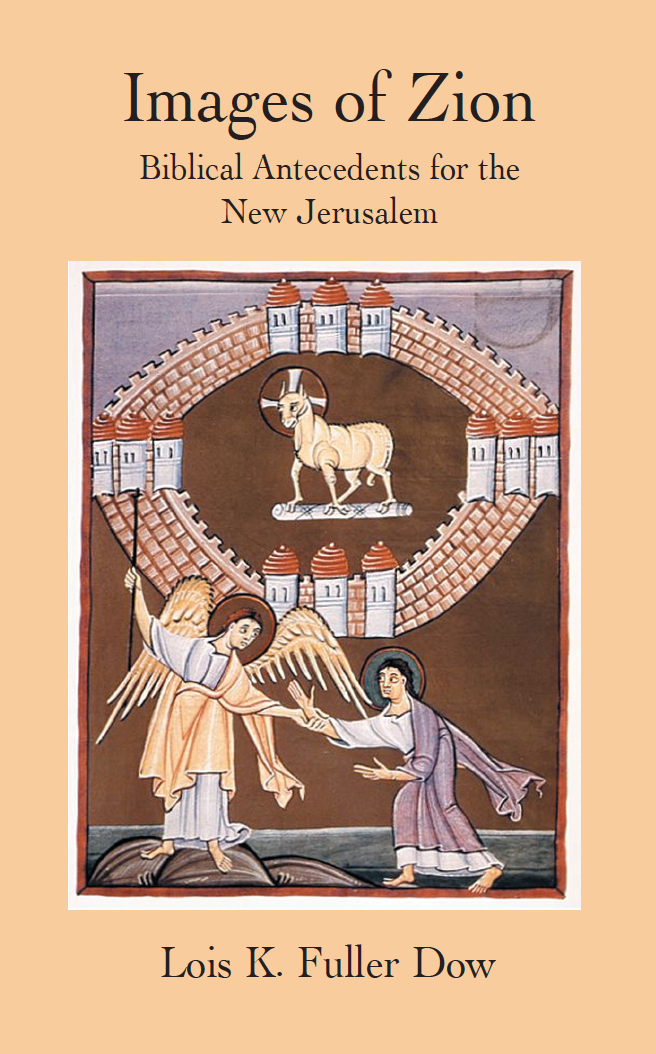
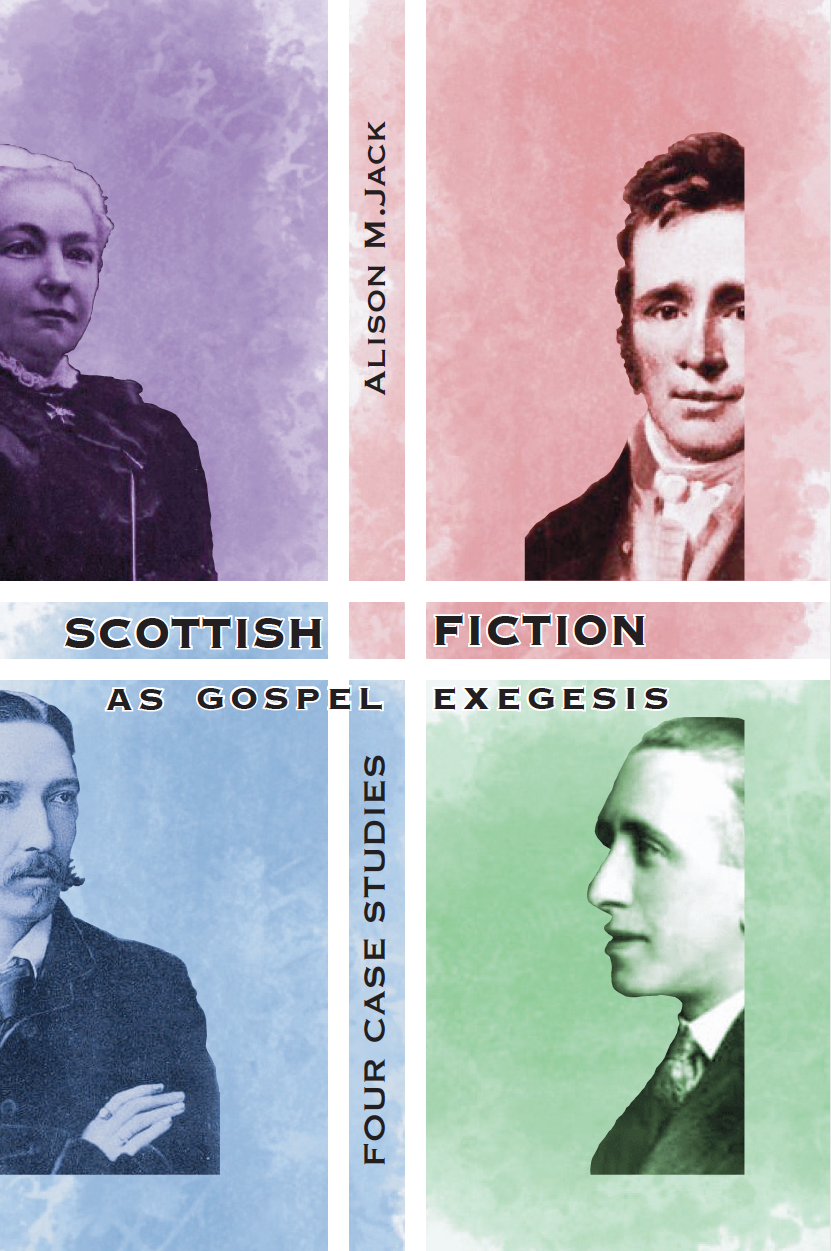
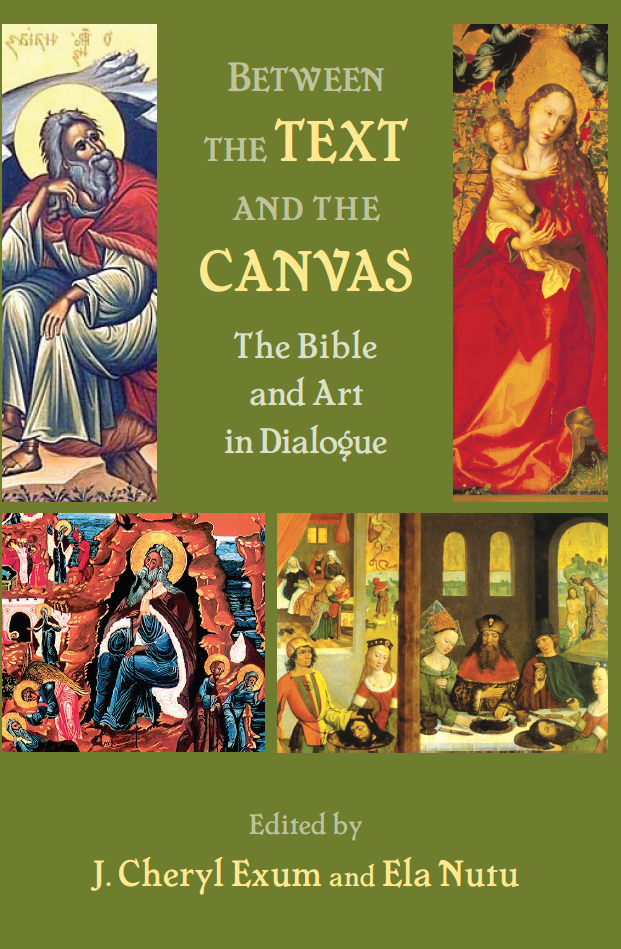
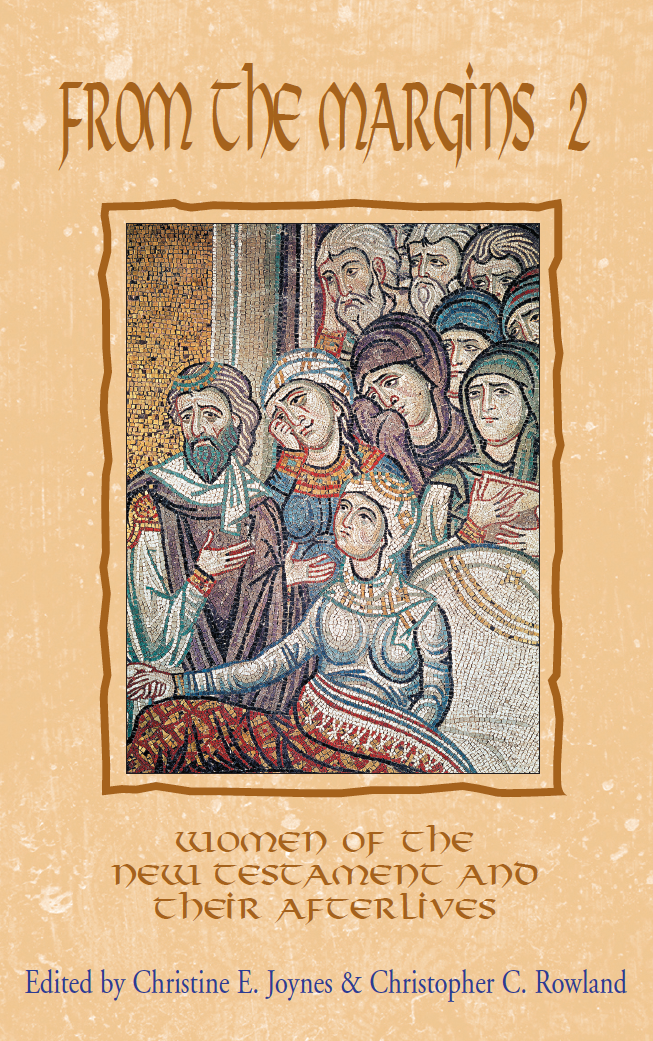
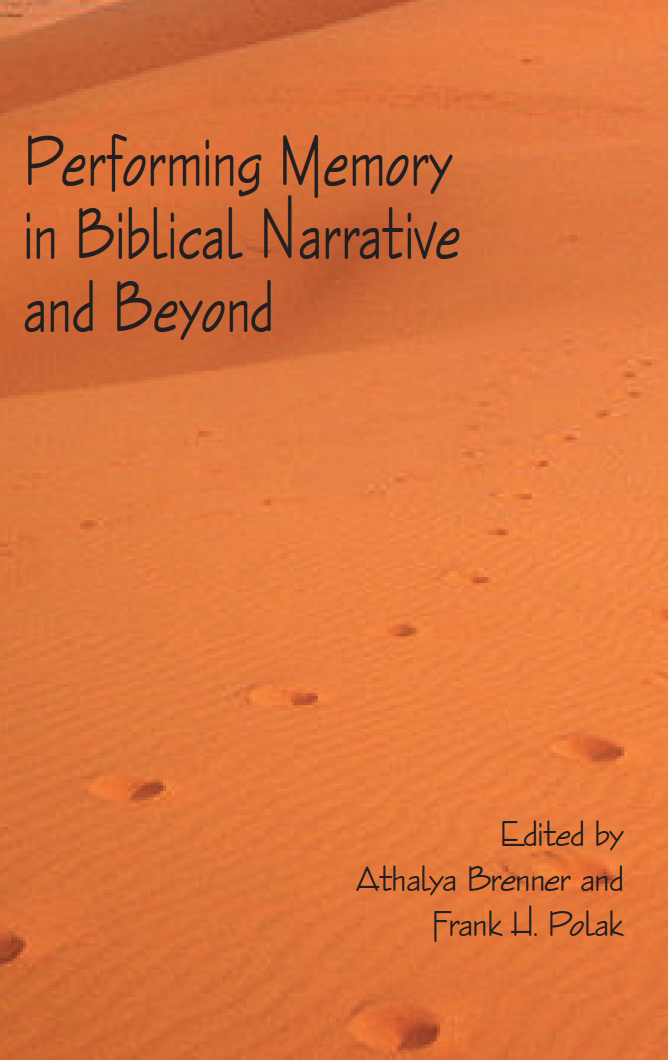


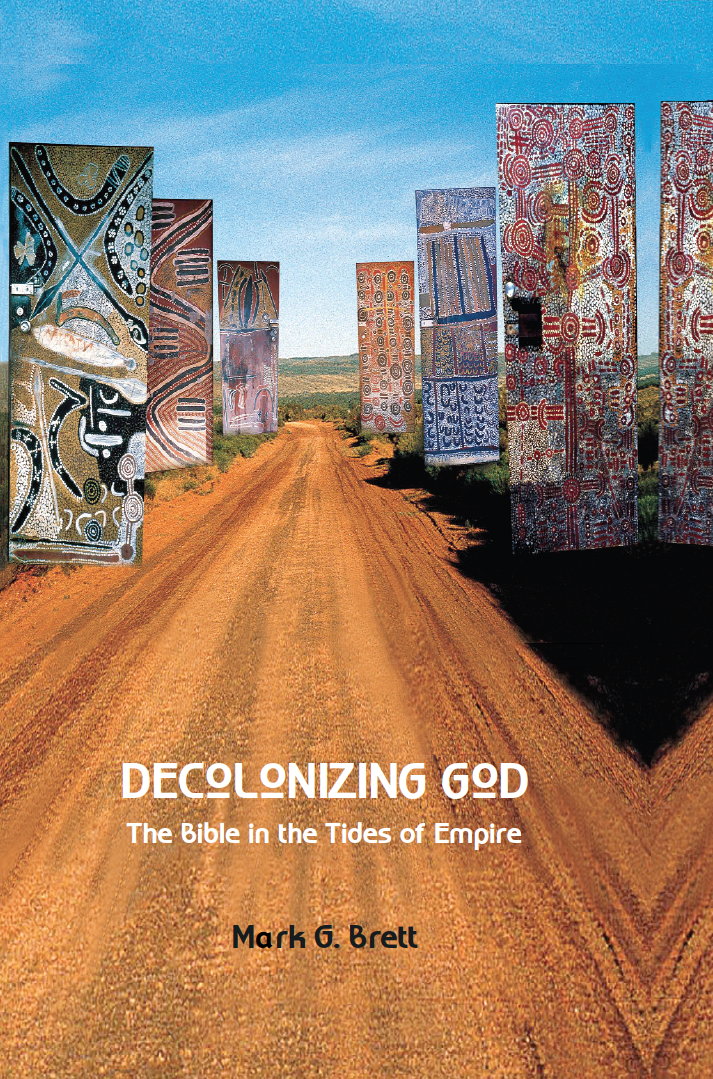

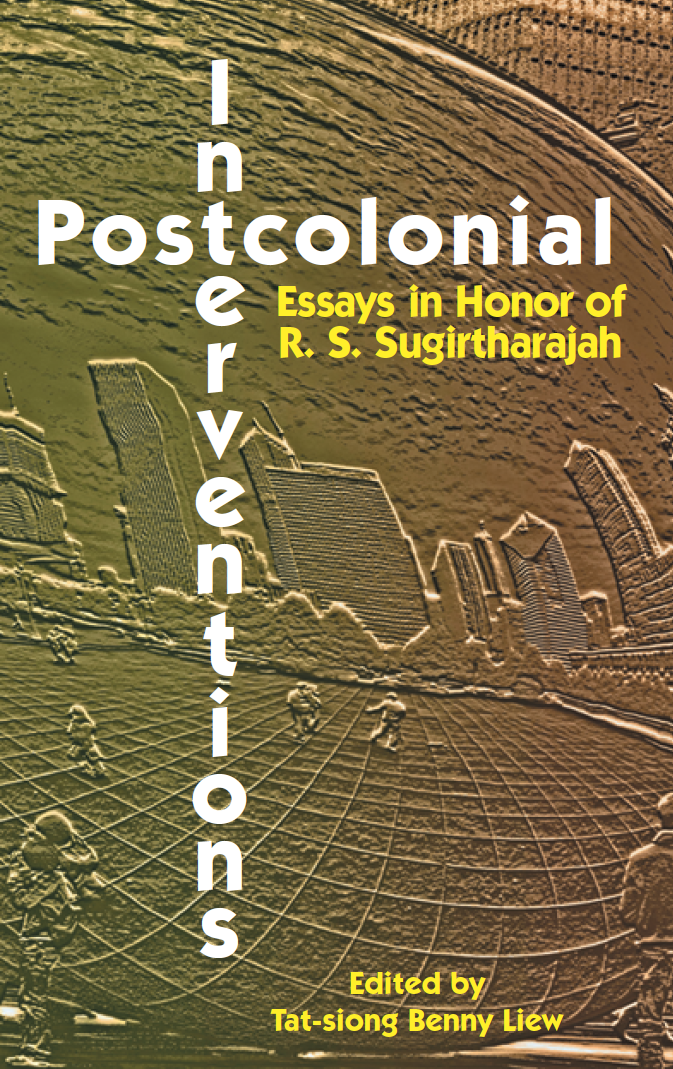

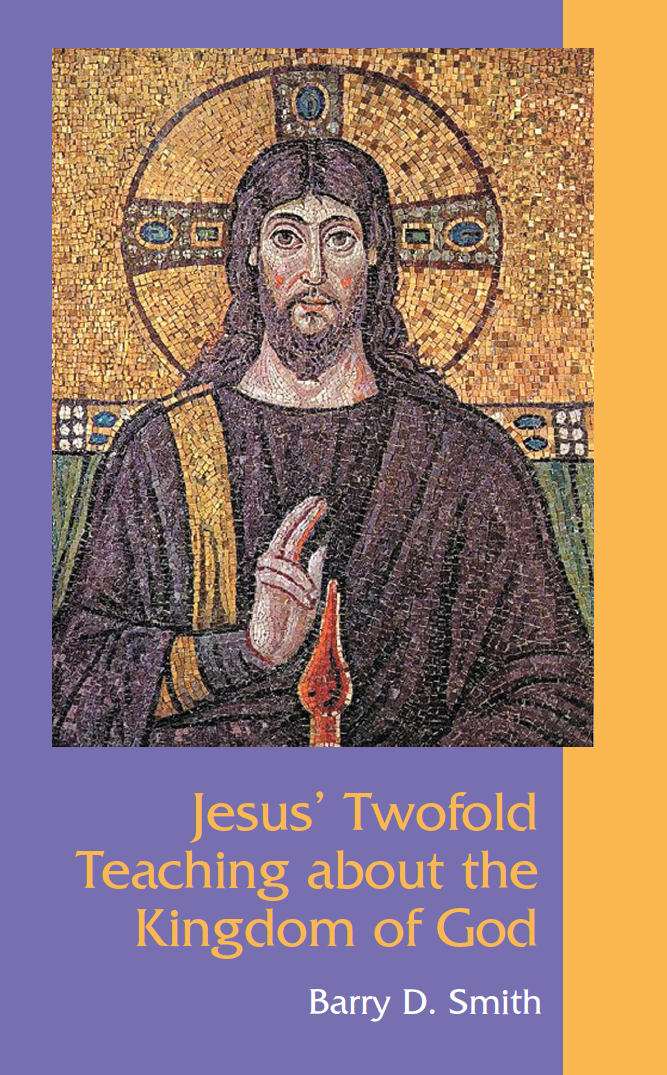

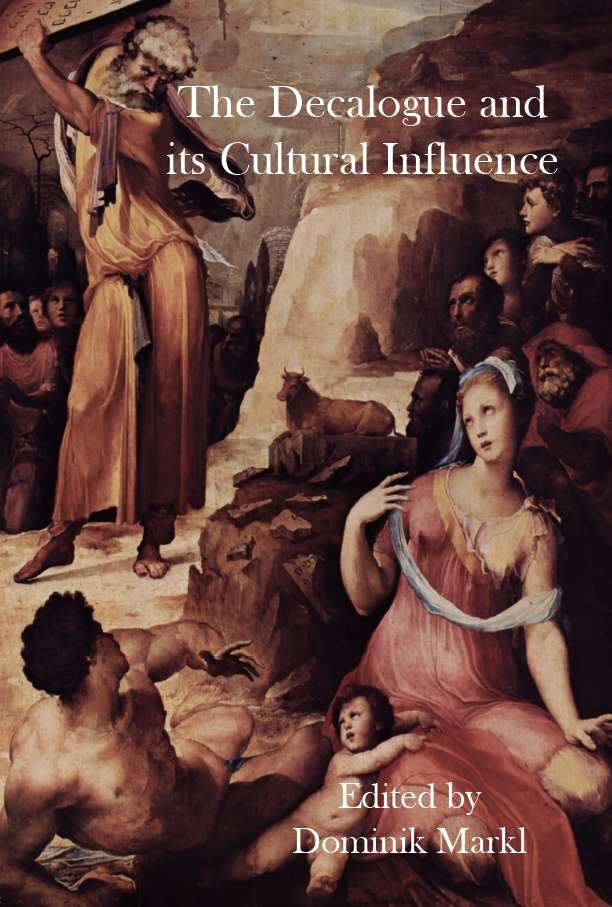
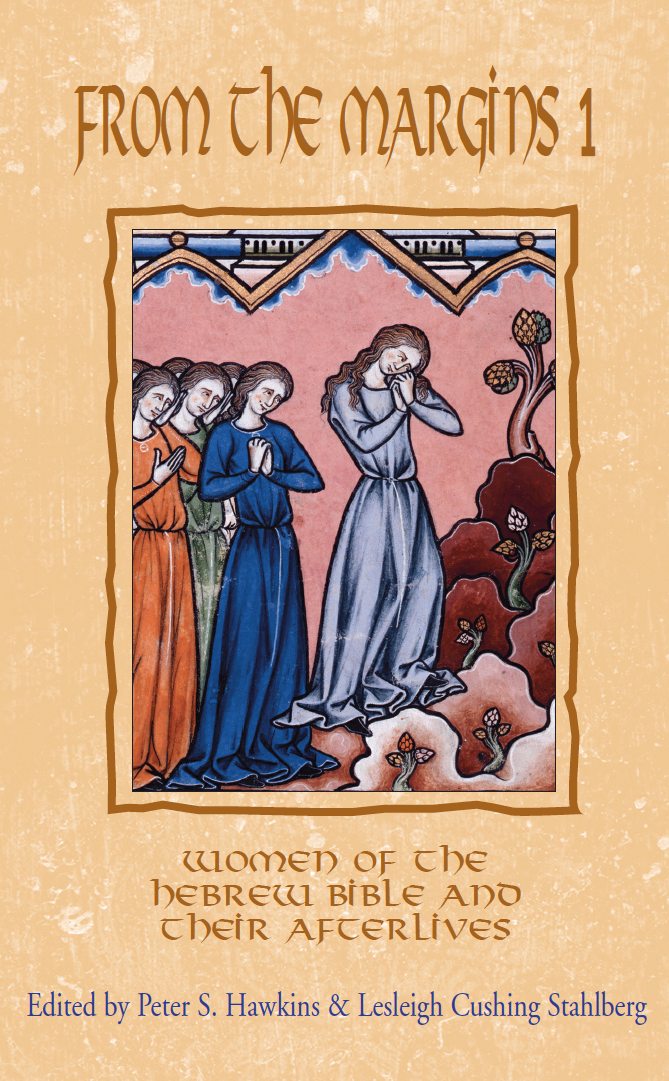


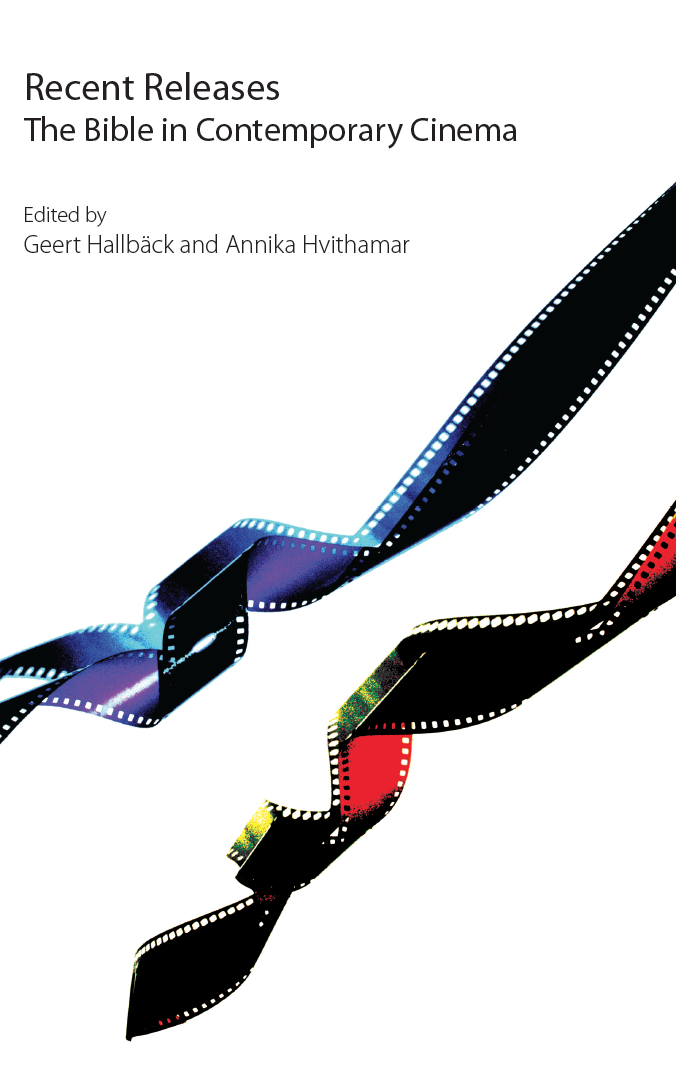
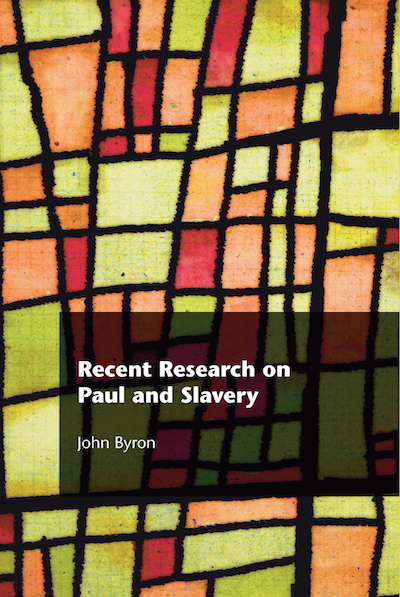
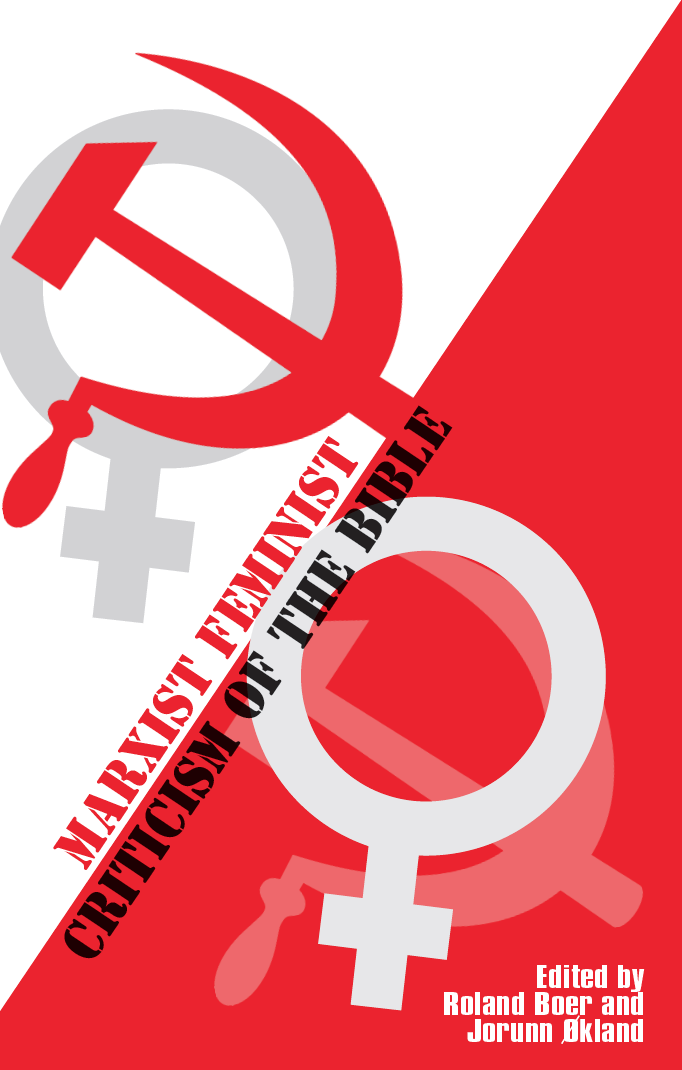


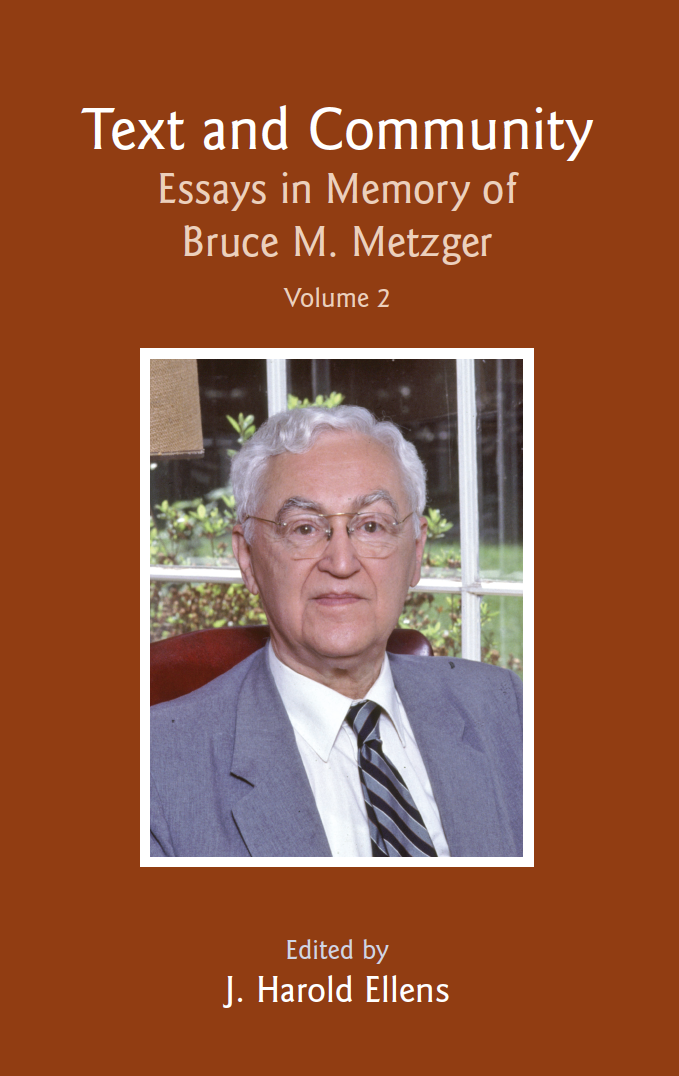

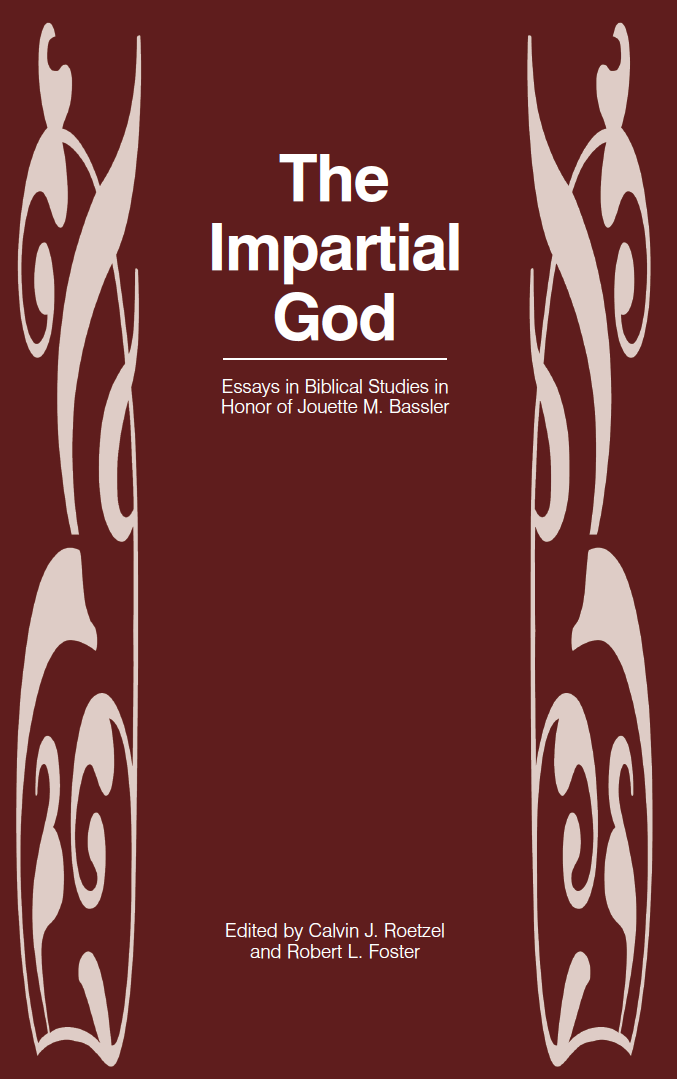

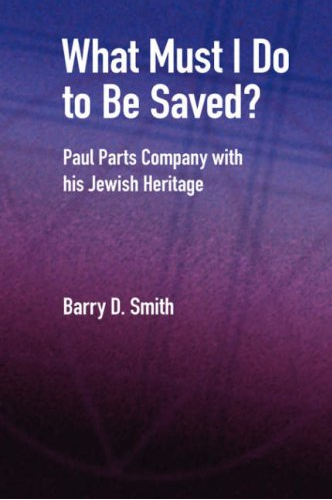
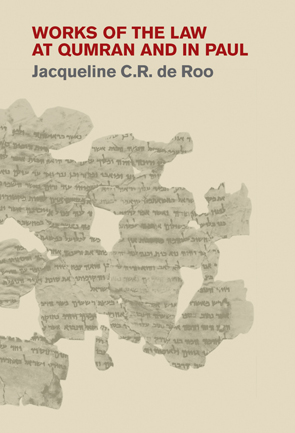
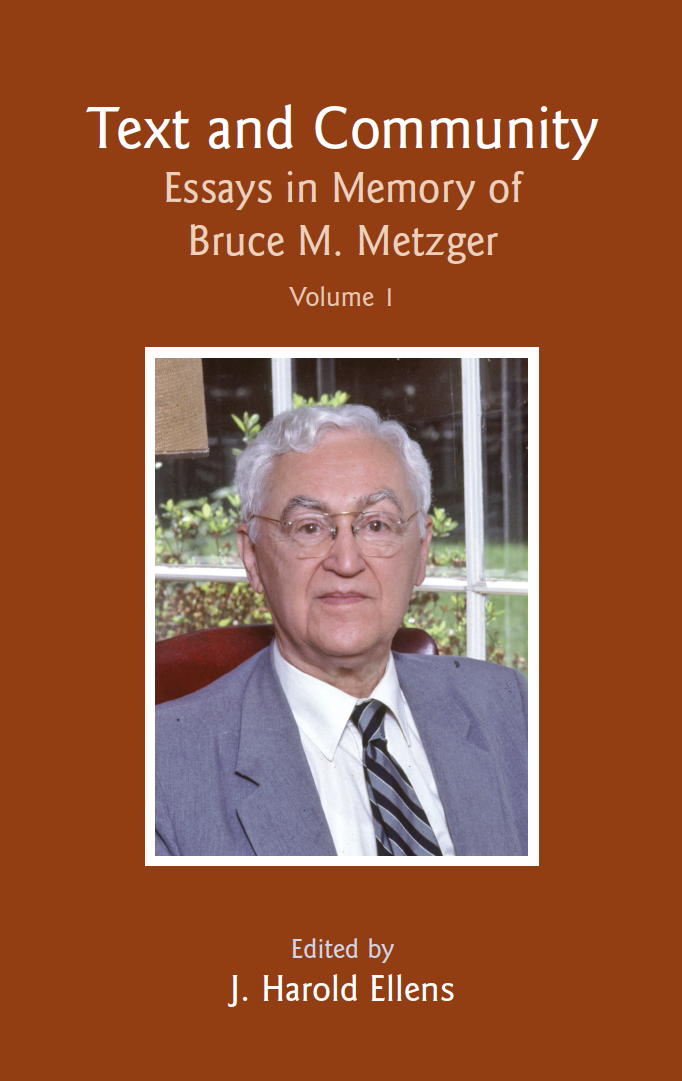

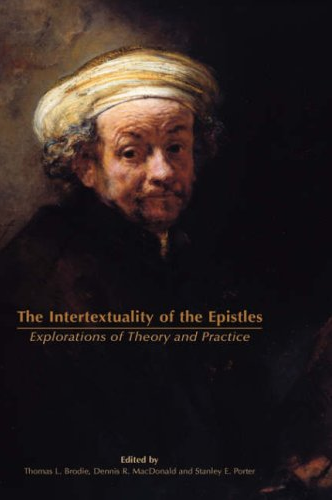

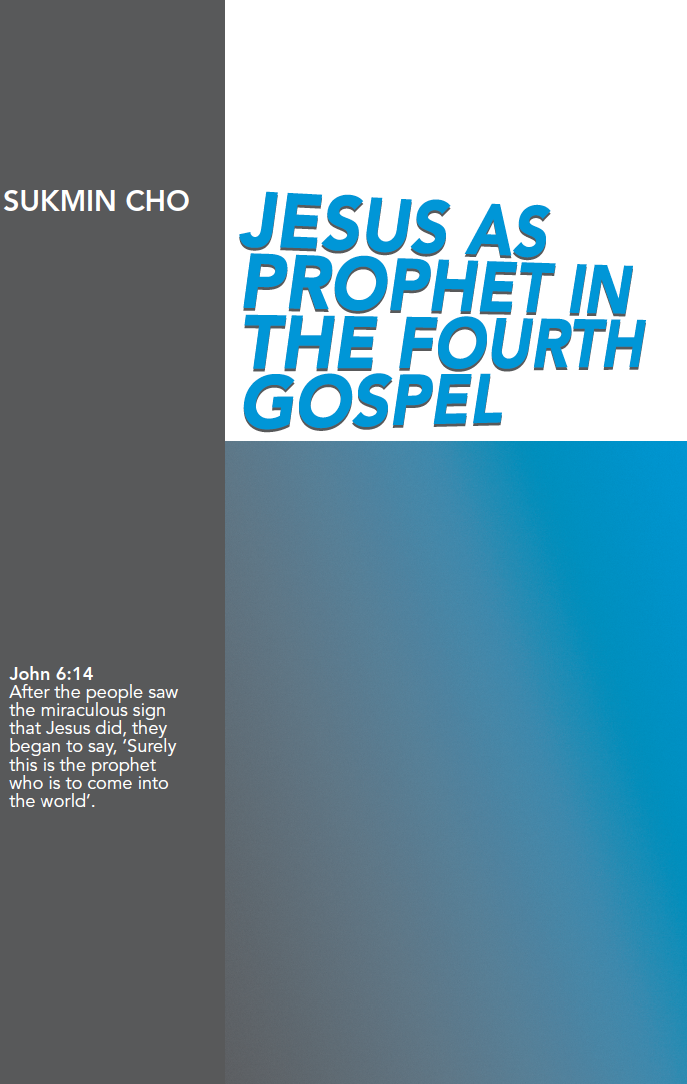
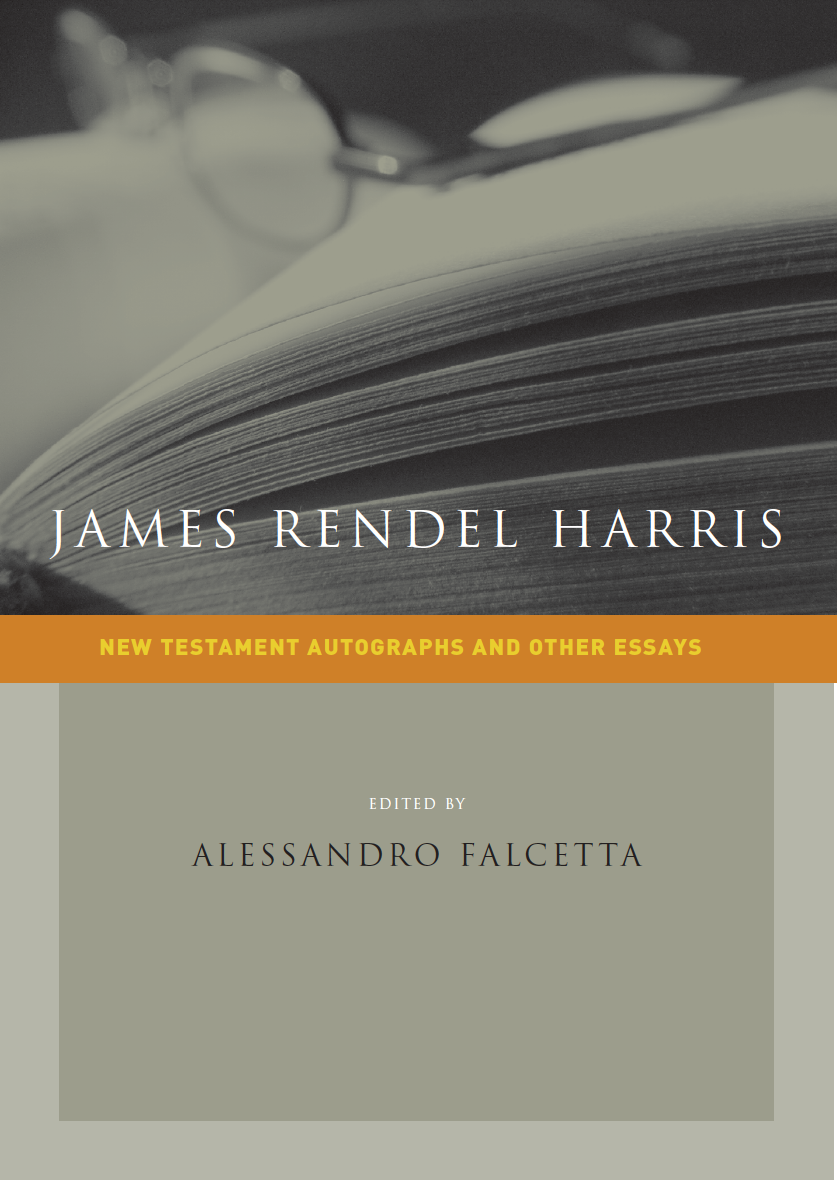
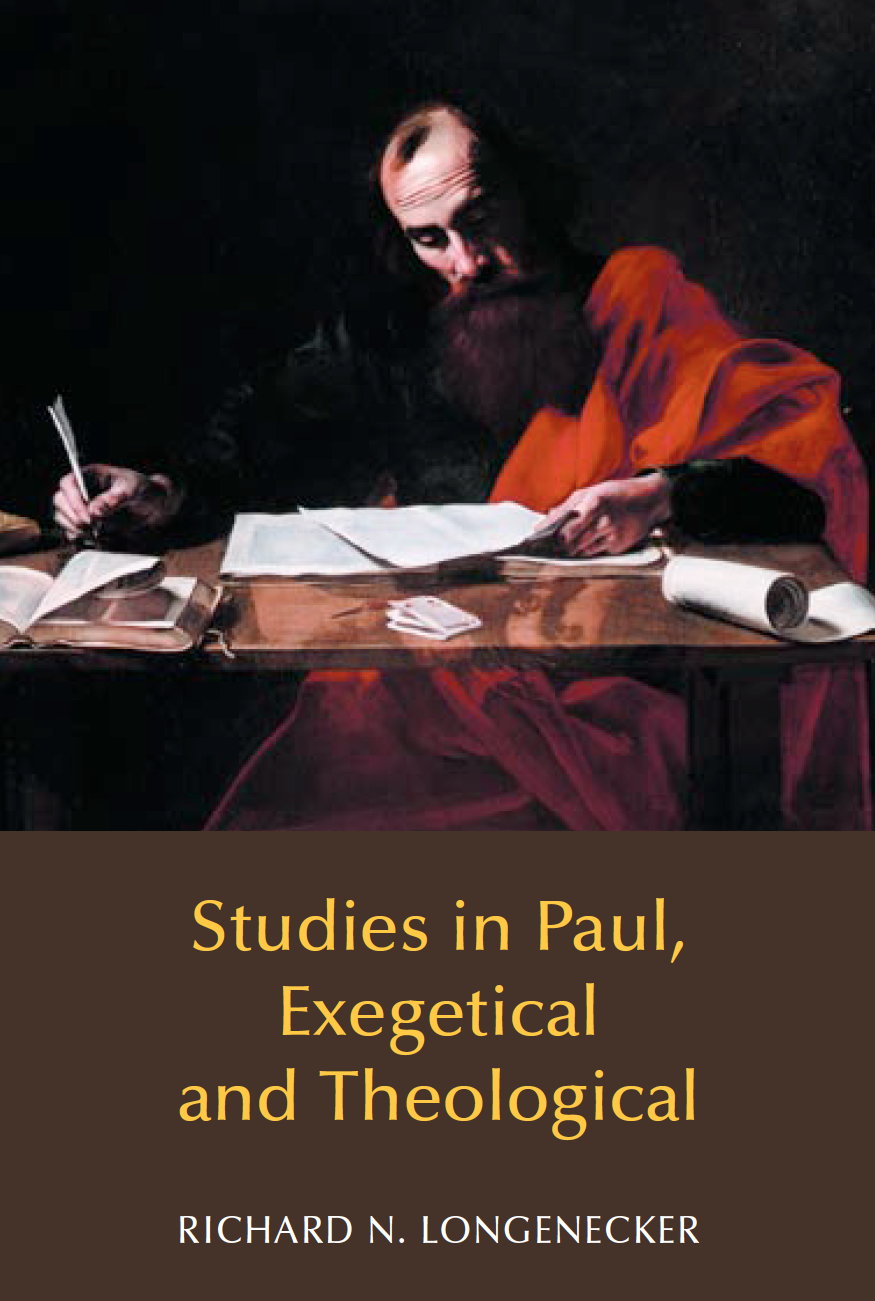
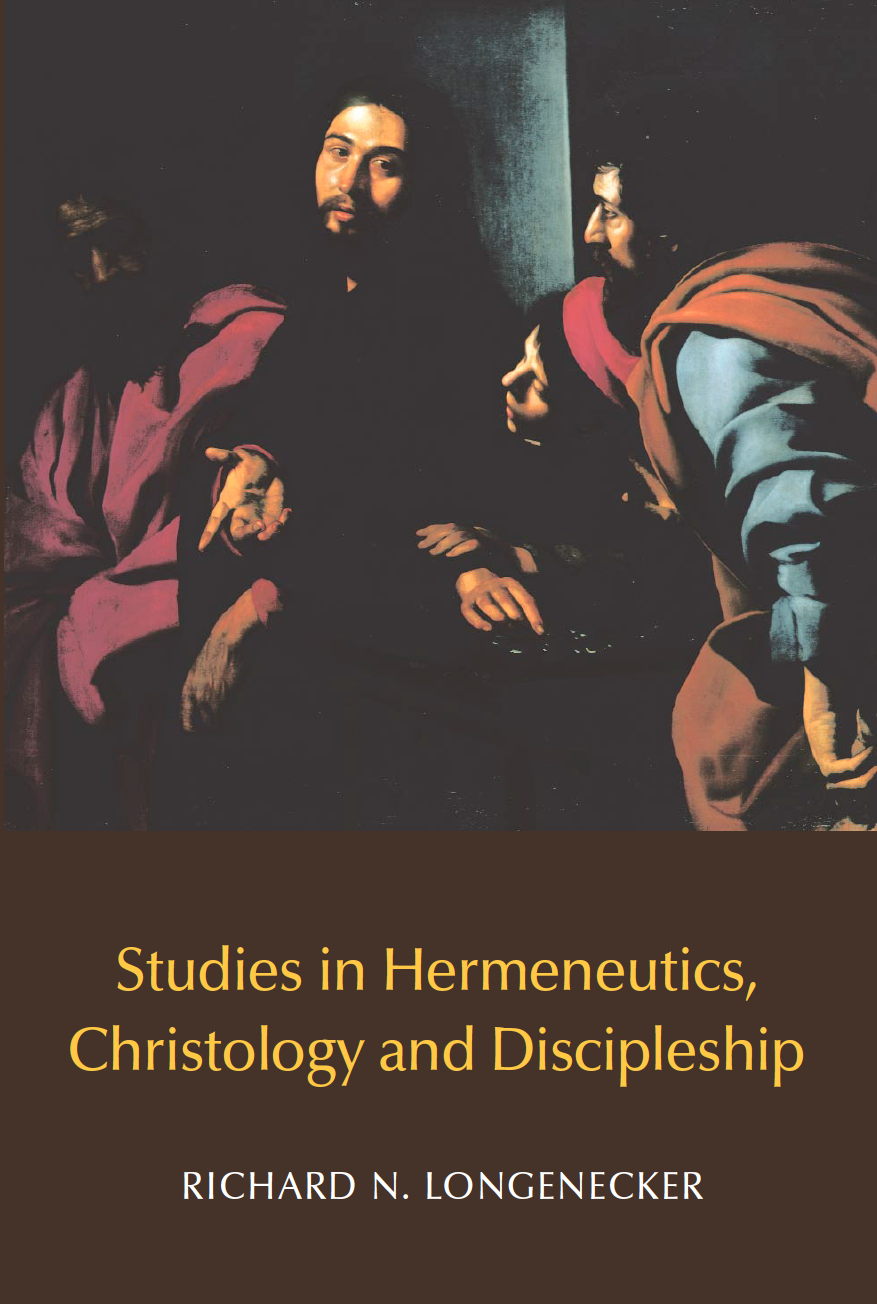
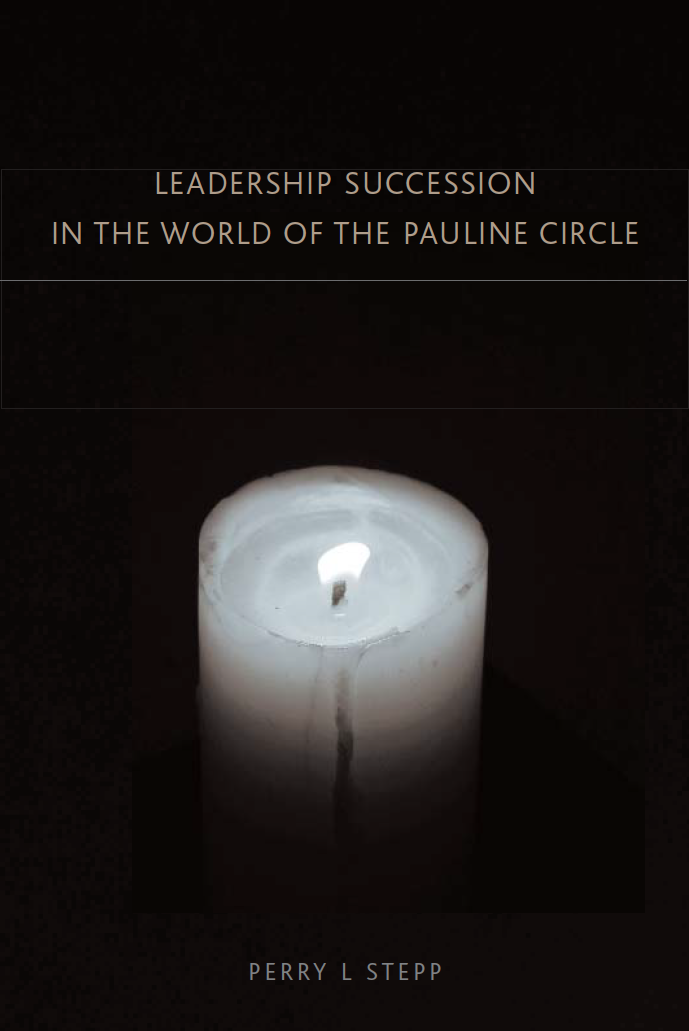

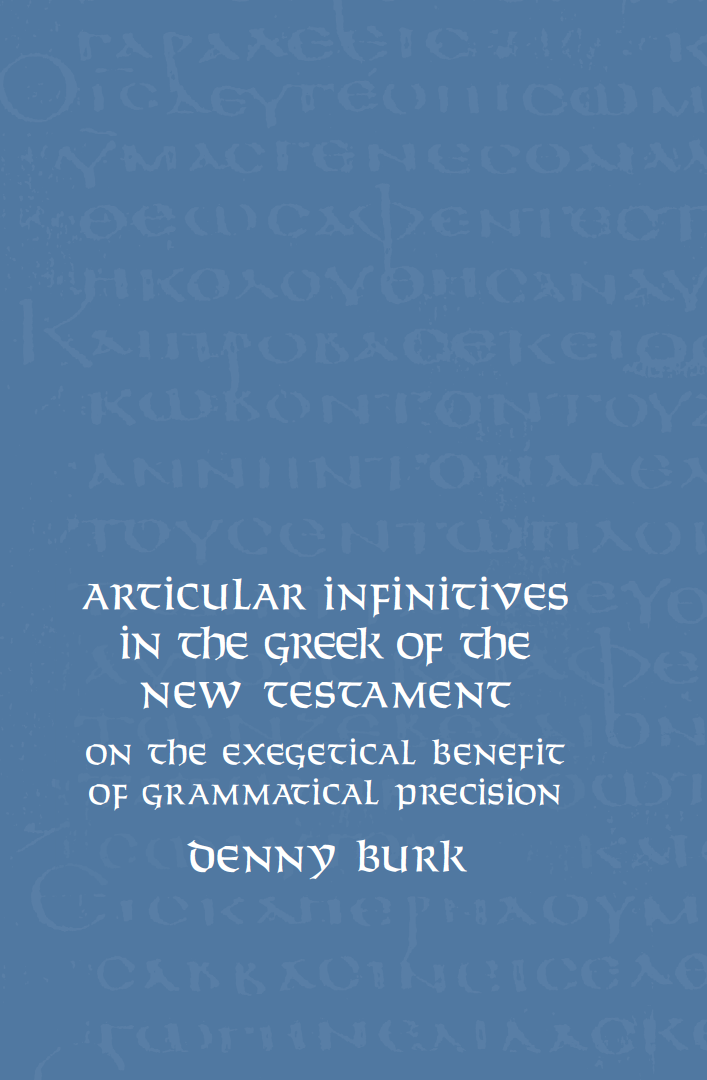

Matthew, Second Edition
Matthew, Second Edition